


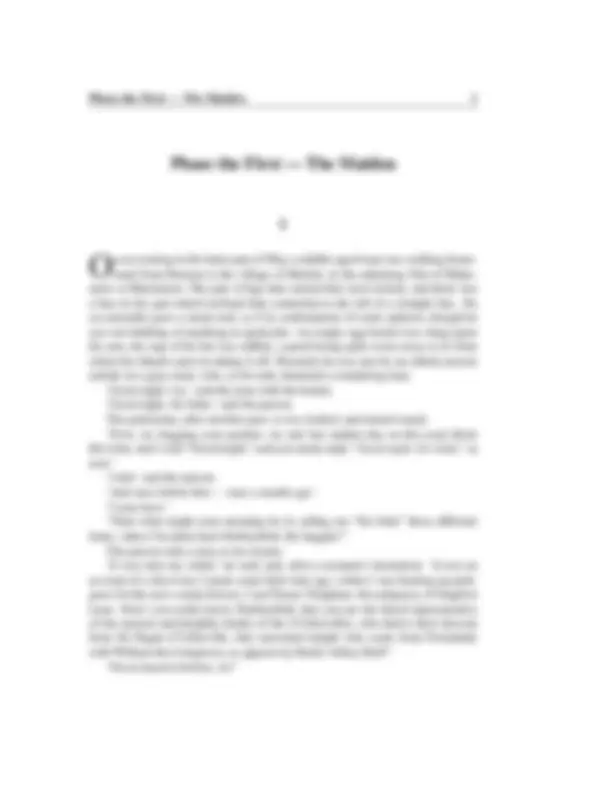
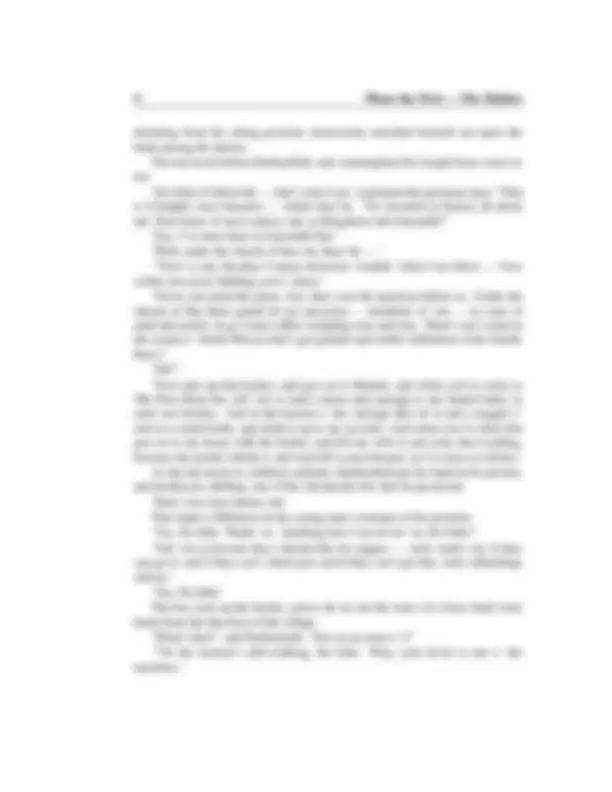
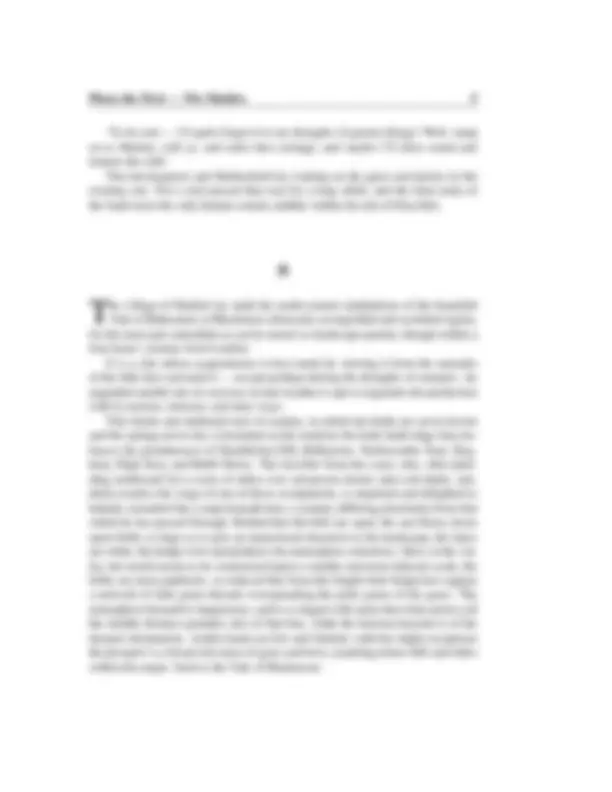
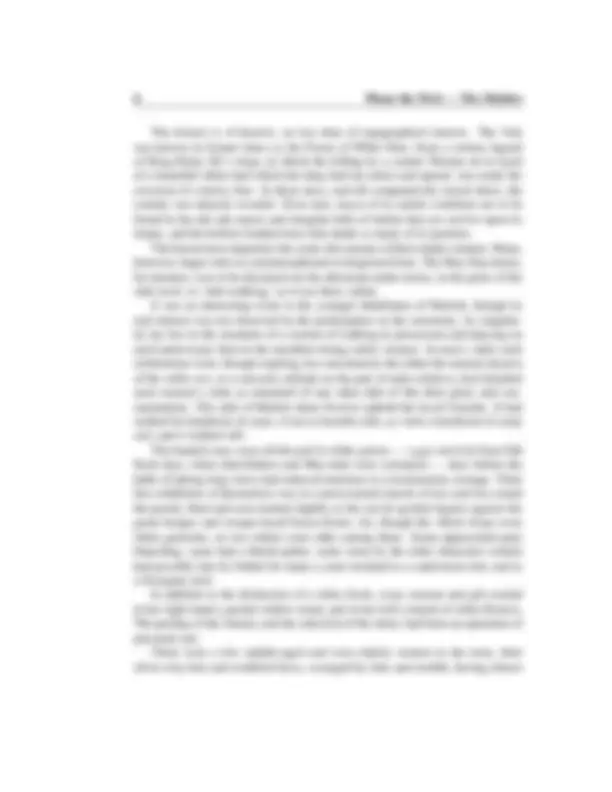
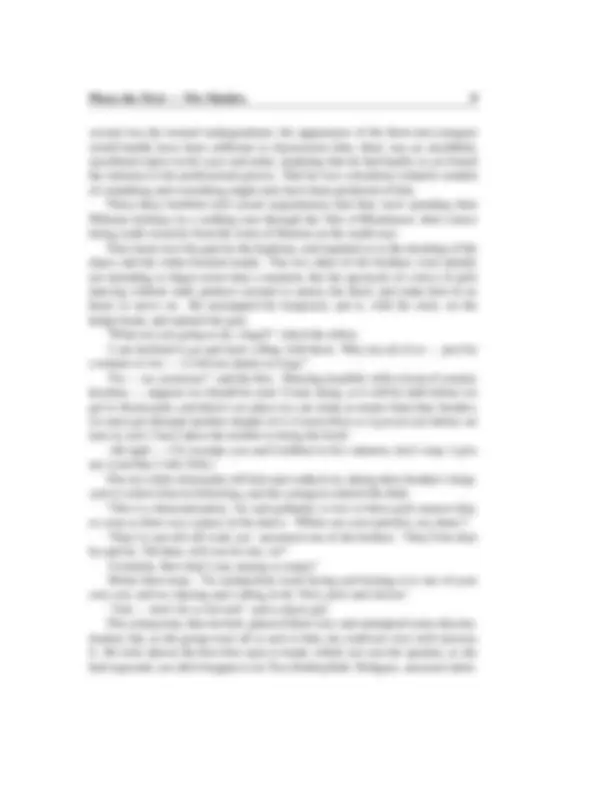
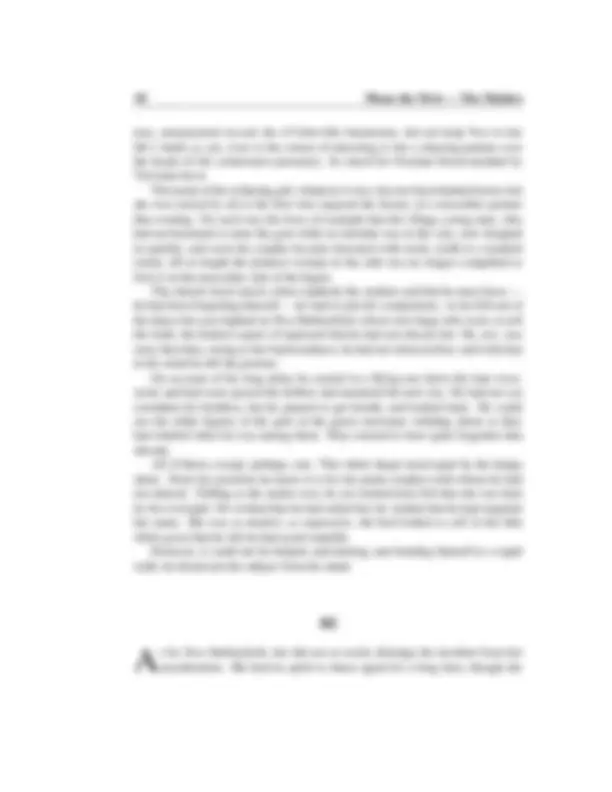
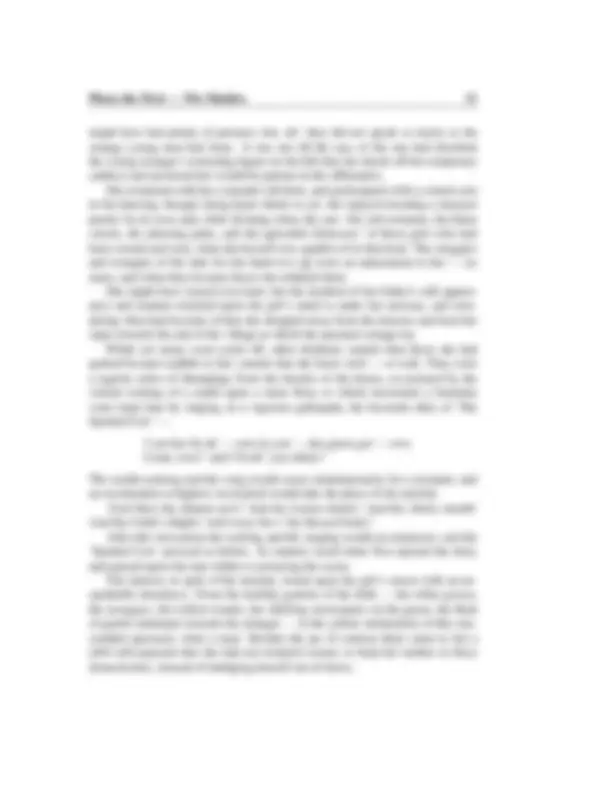
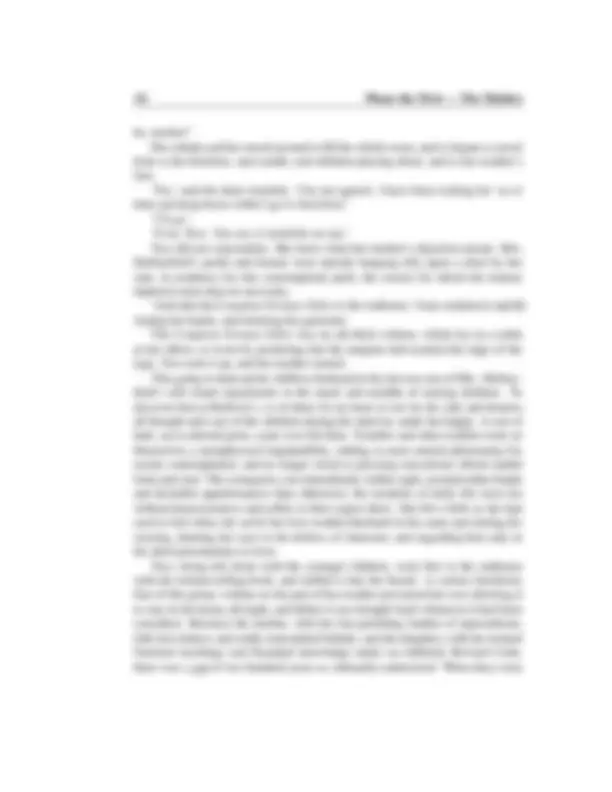
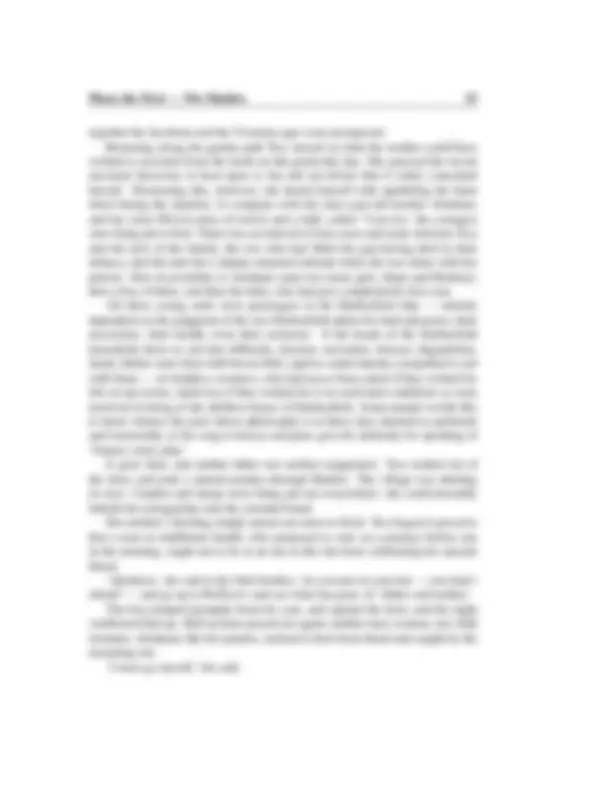
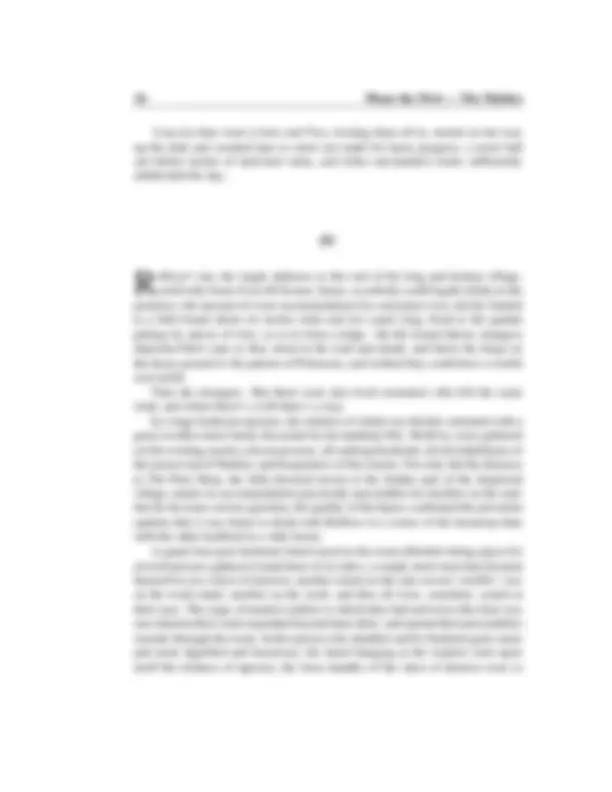

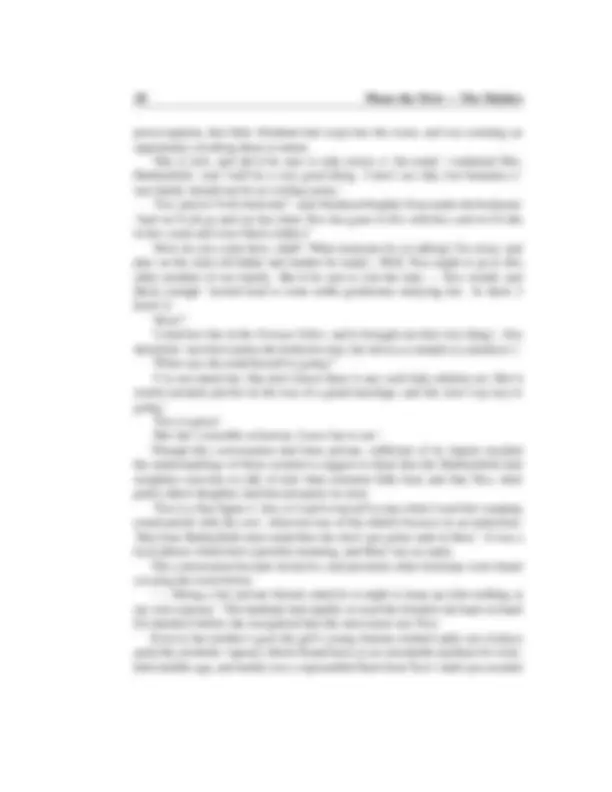
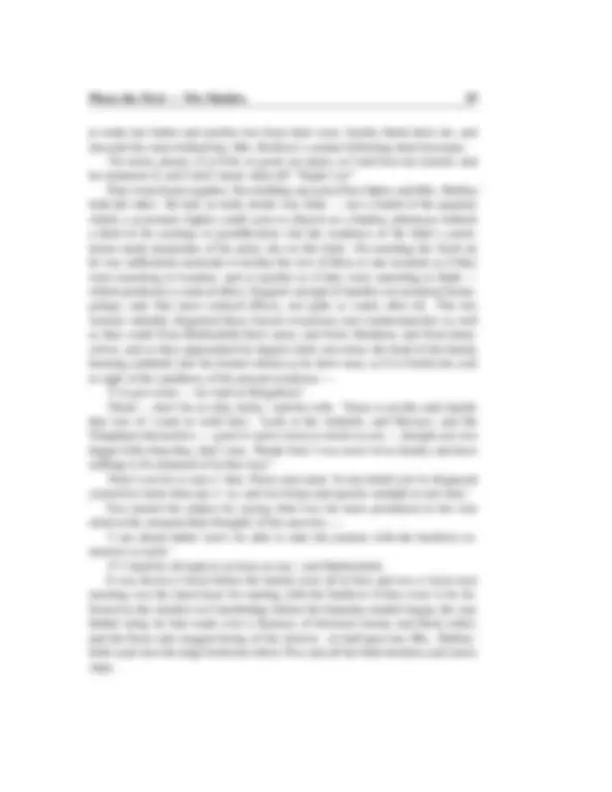
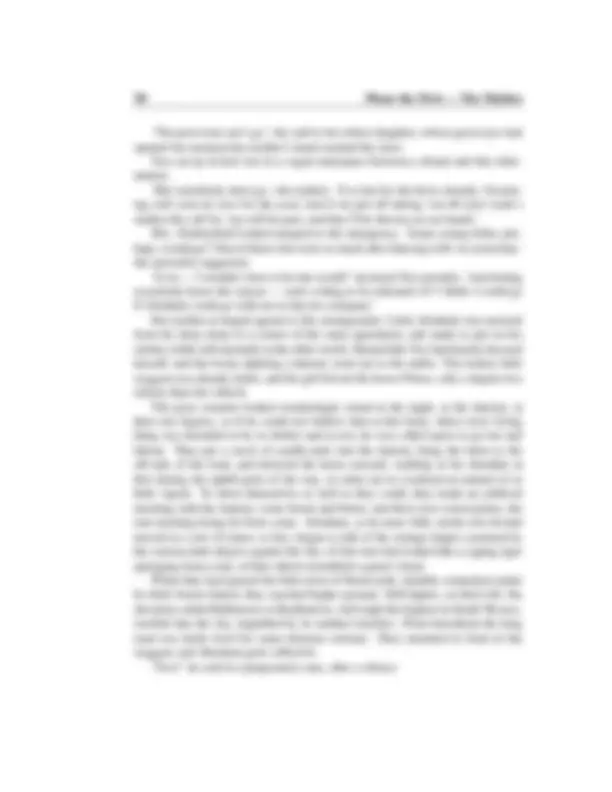
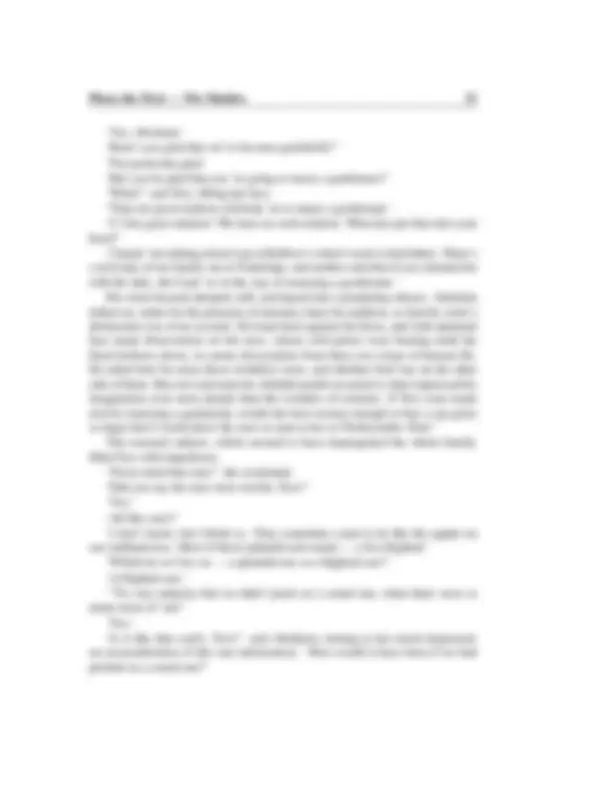
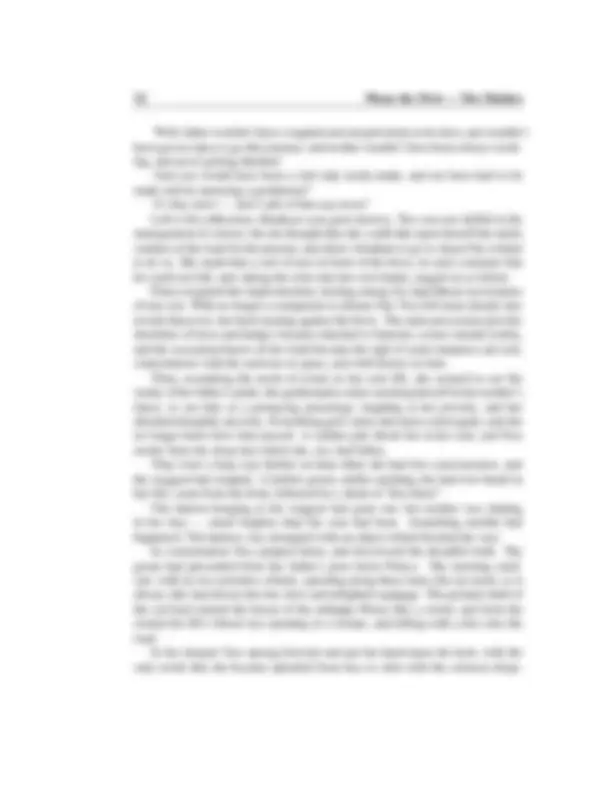
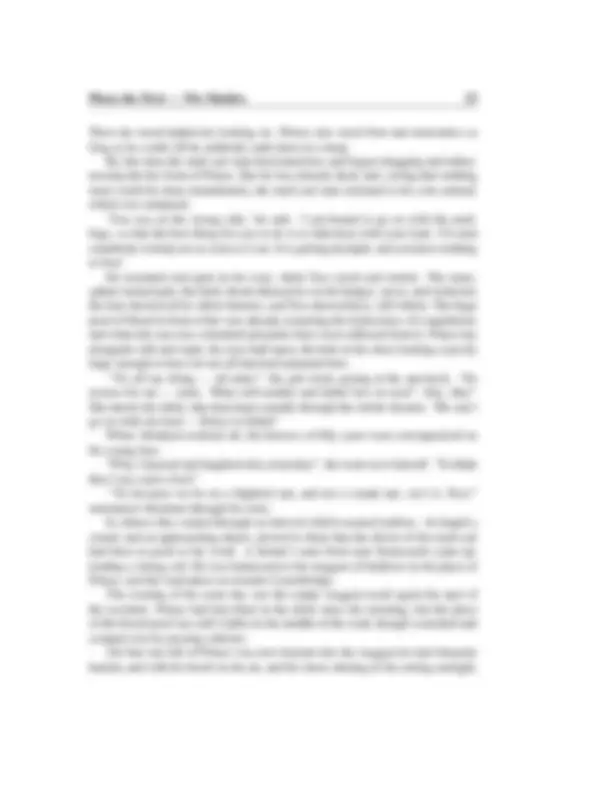
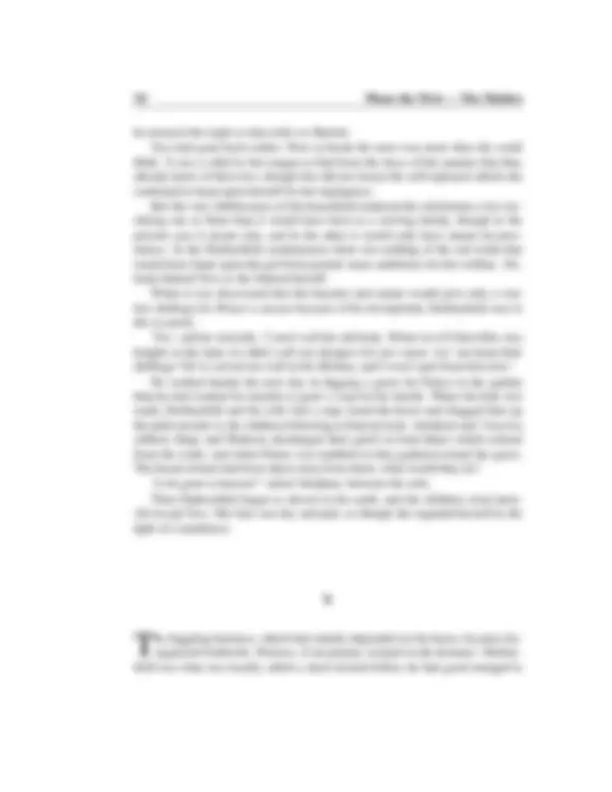
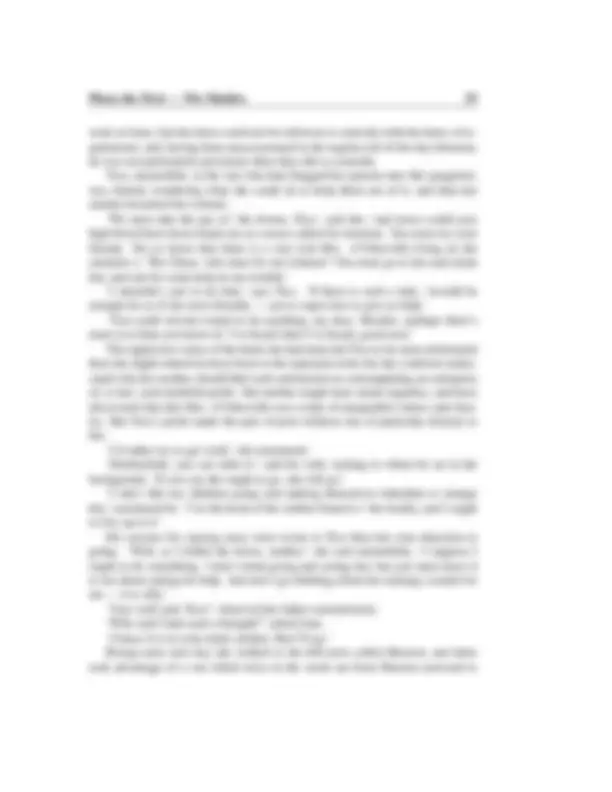
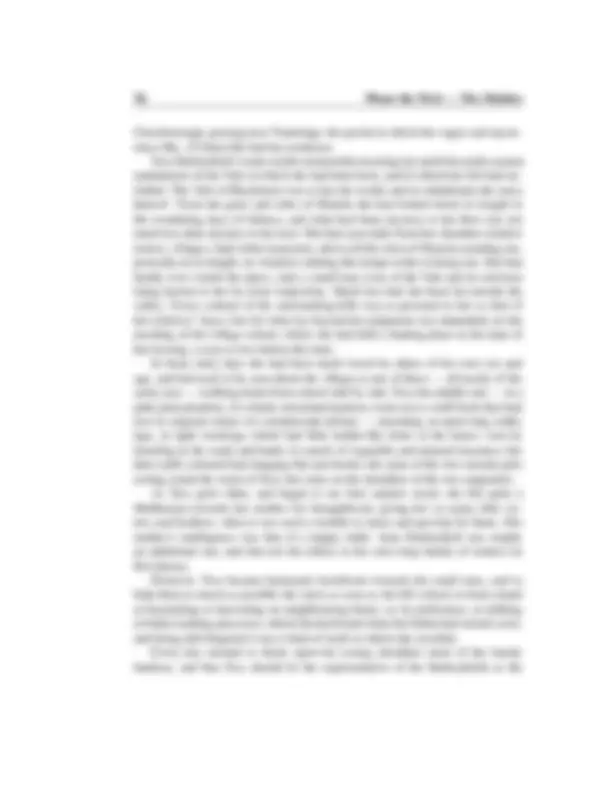
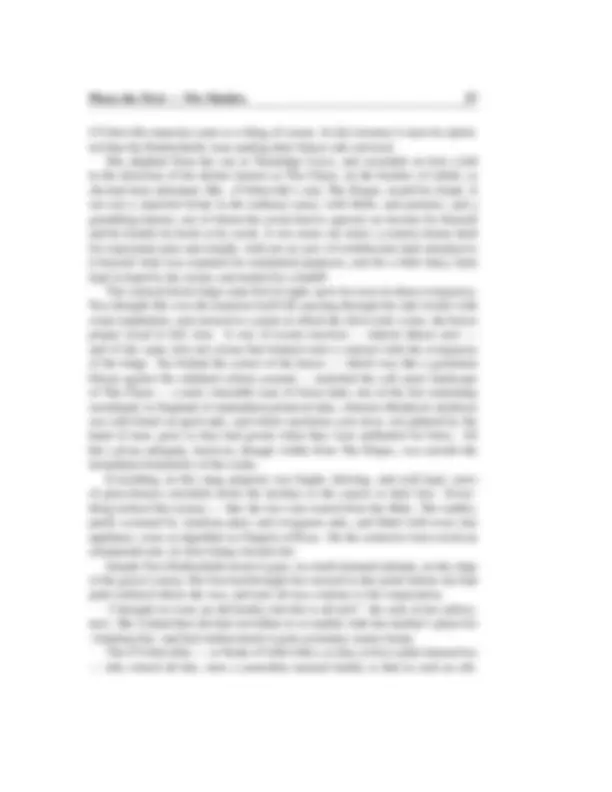
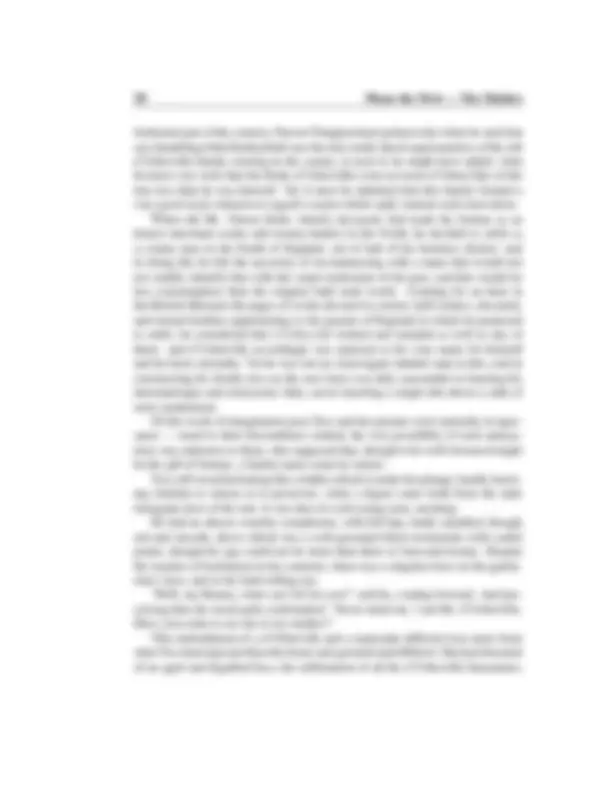
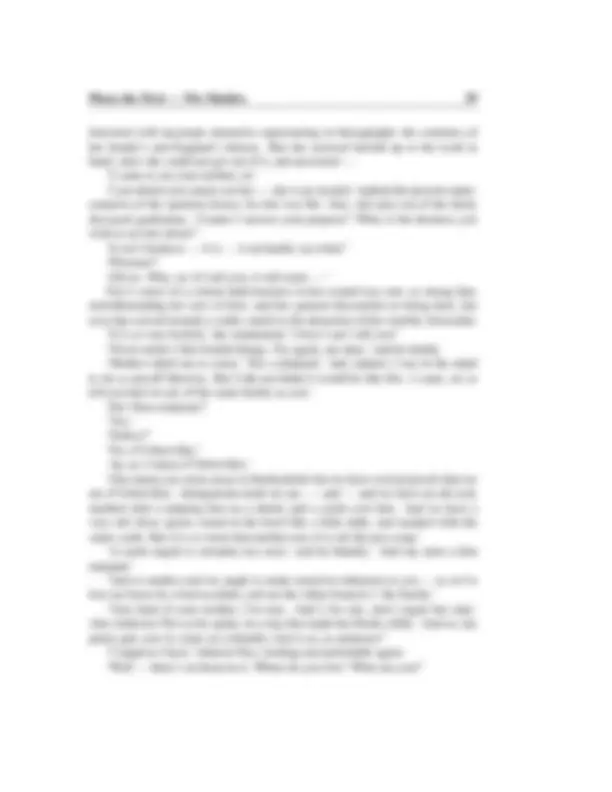
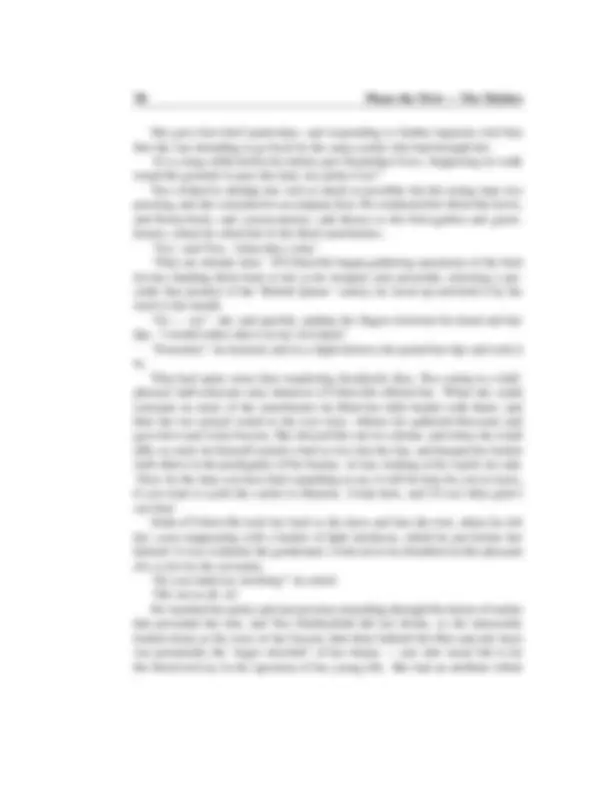
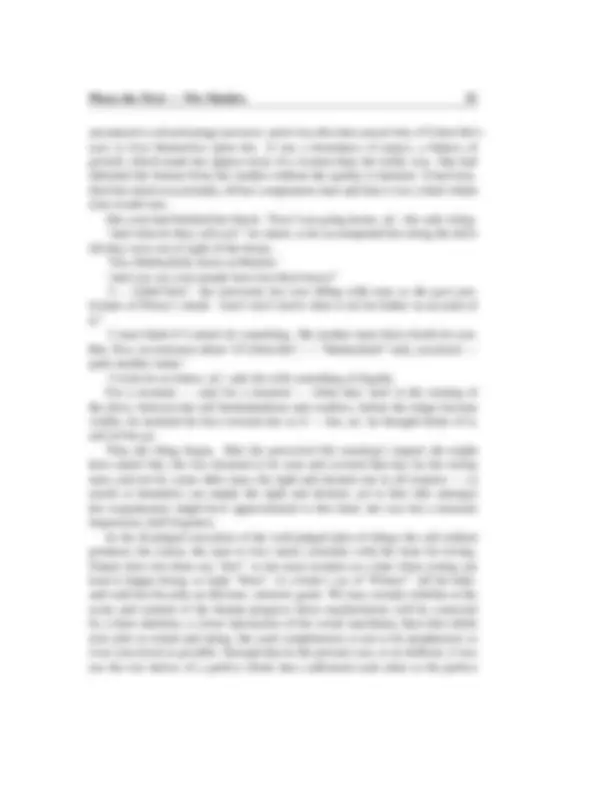
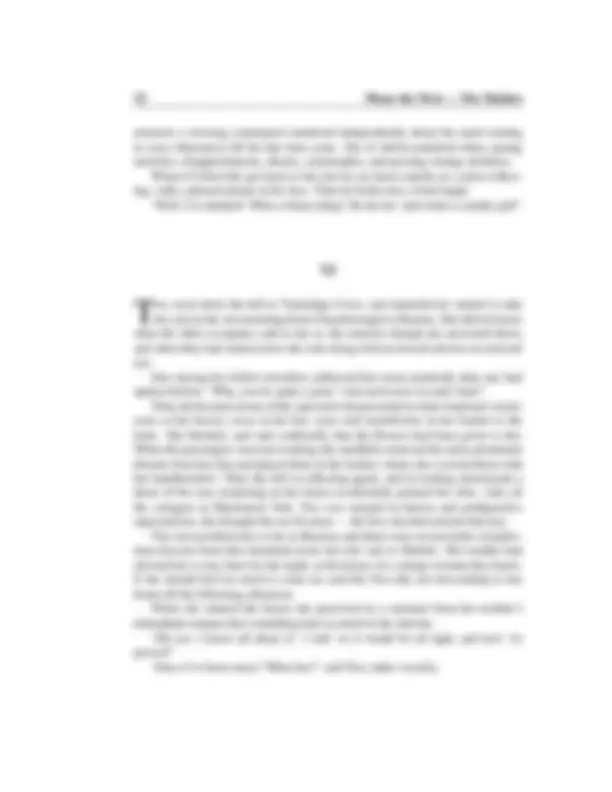
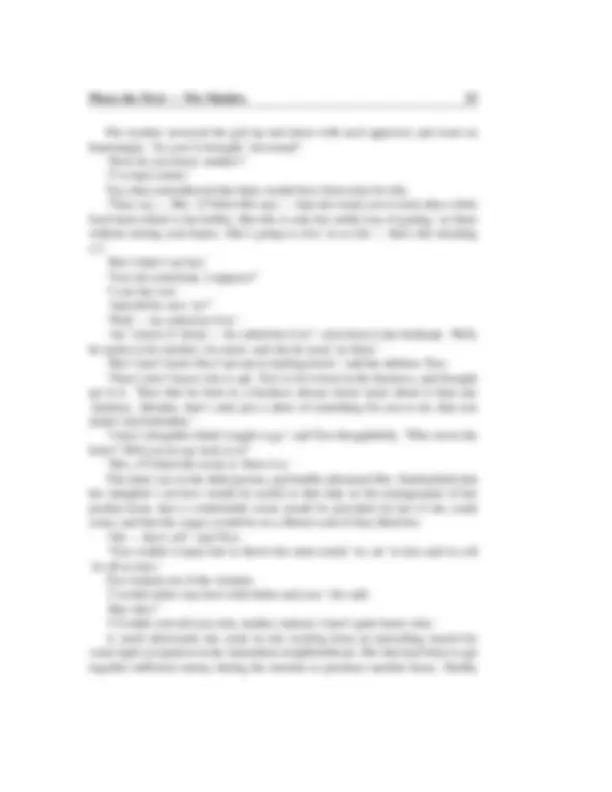
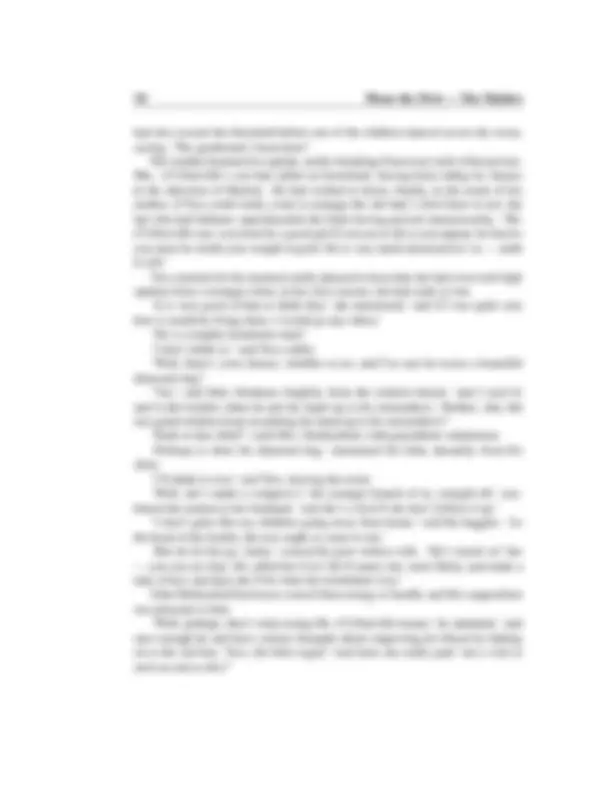
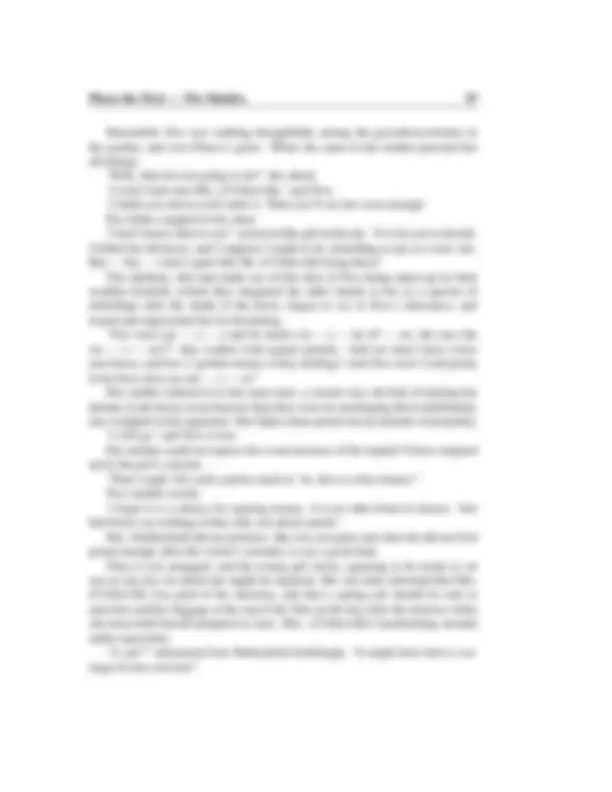
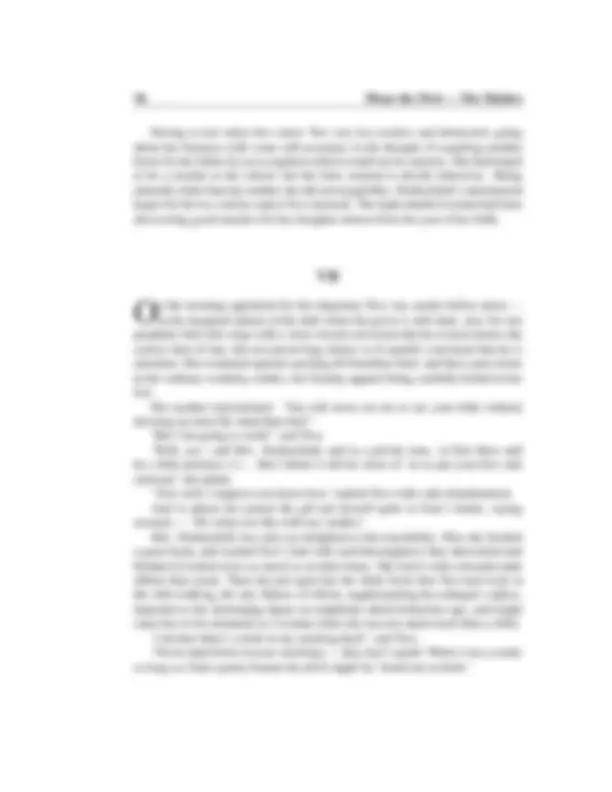
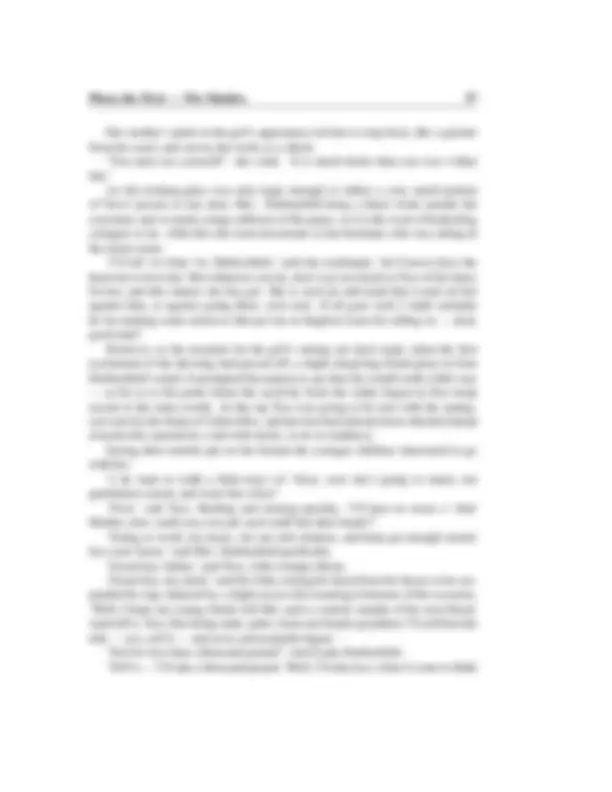
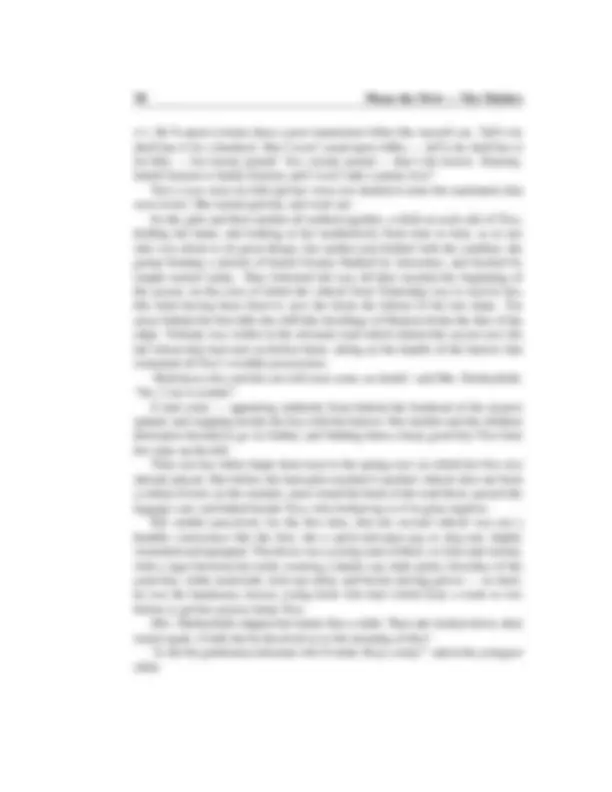
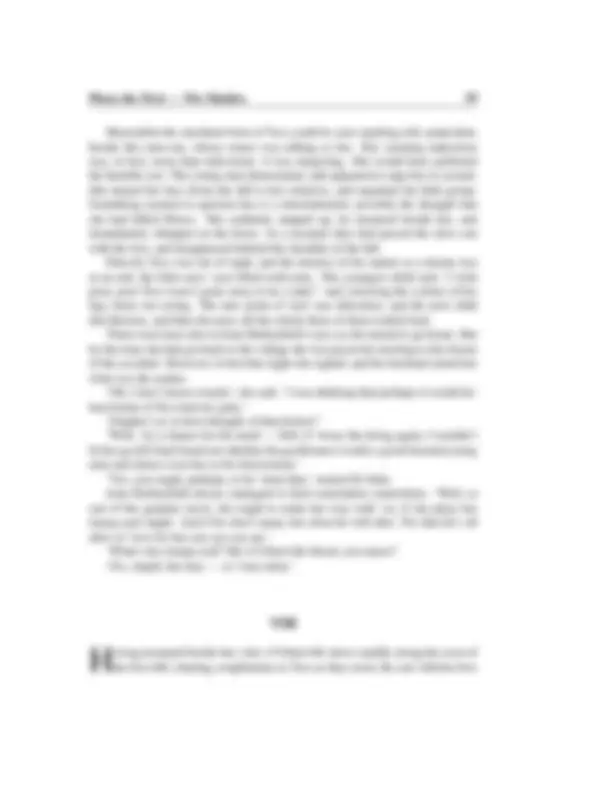
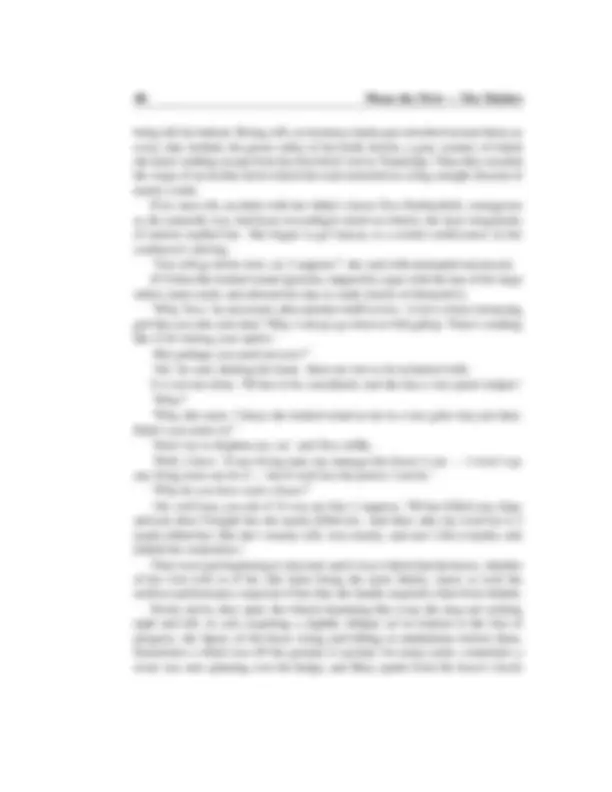

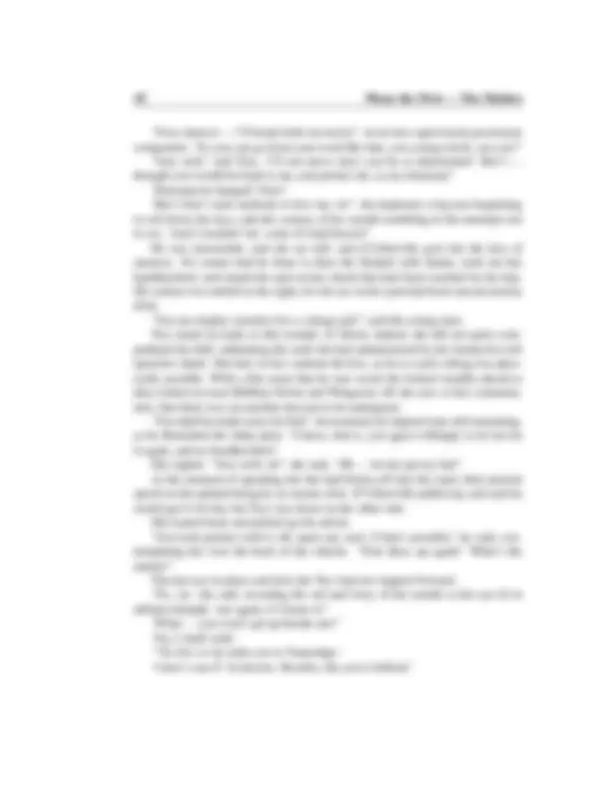
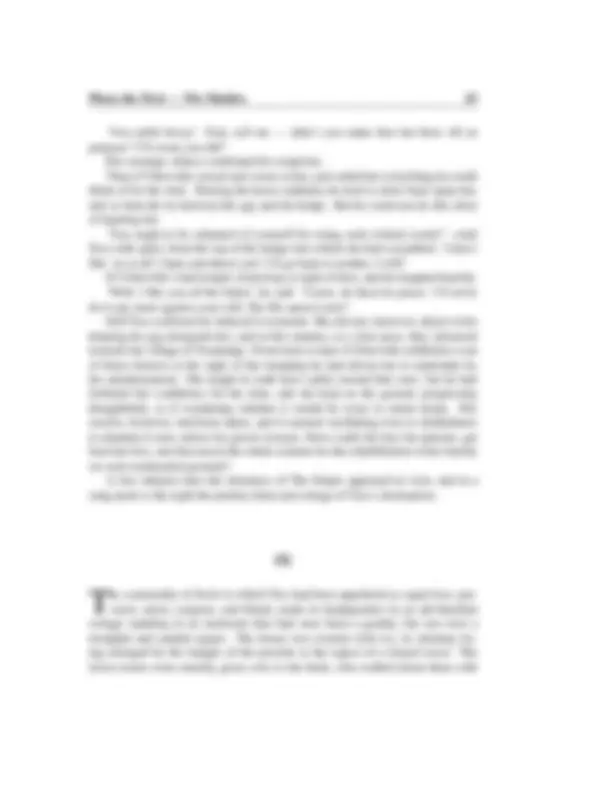
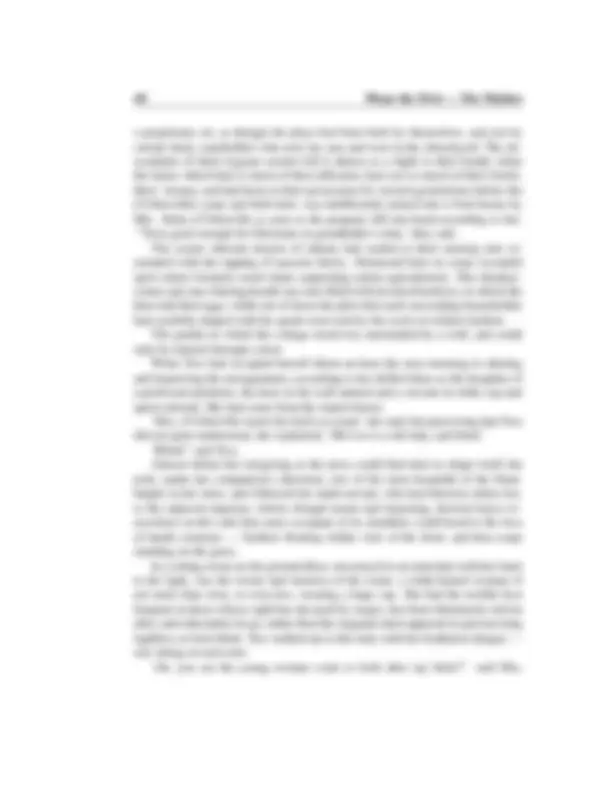
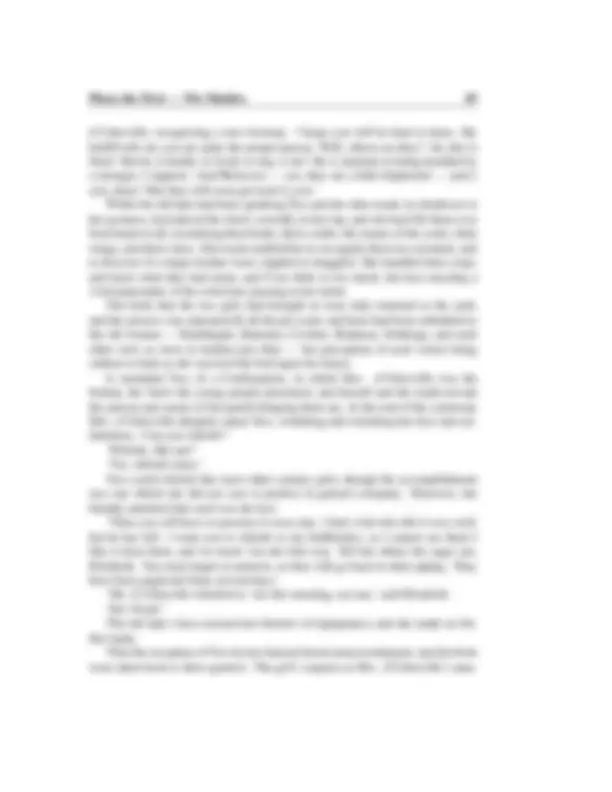


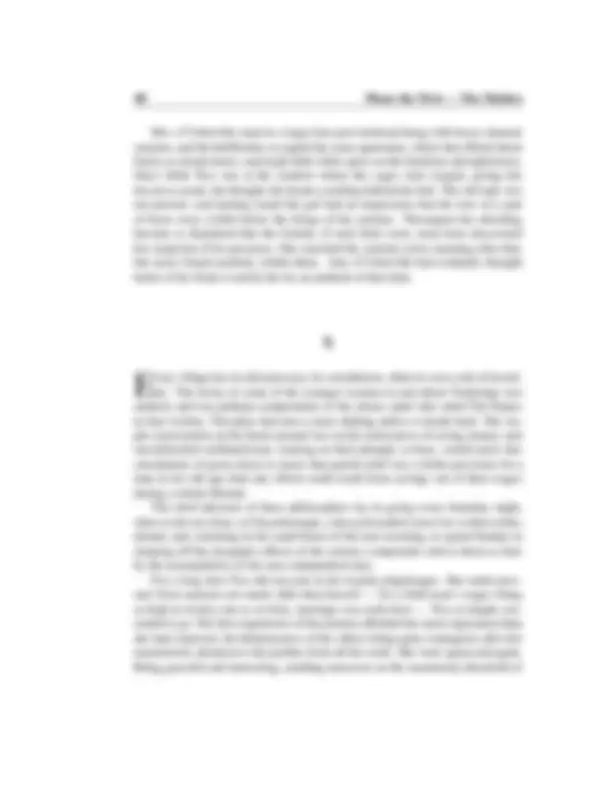
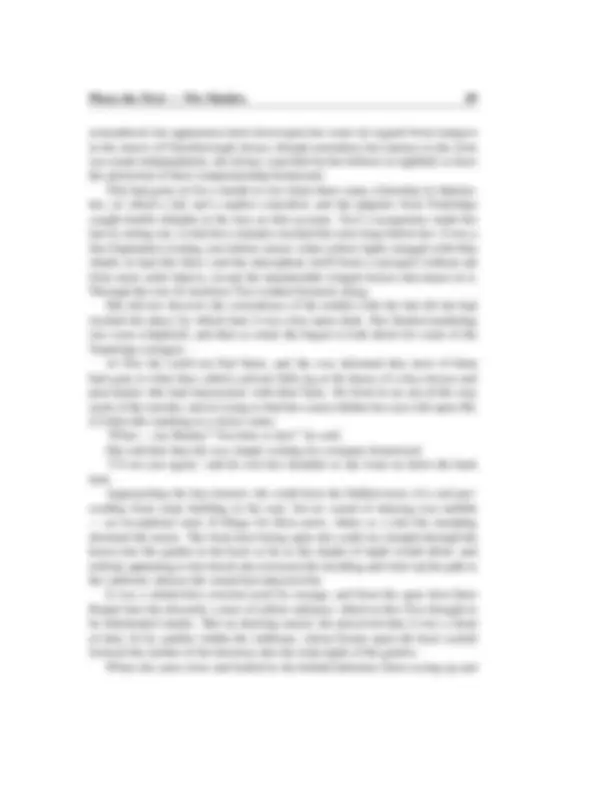
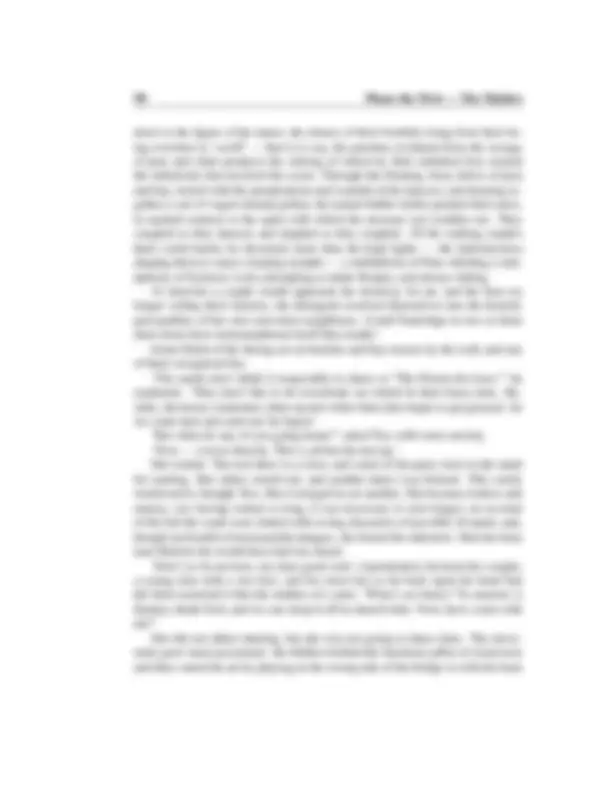
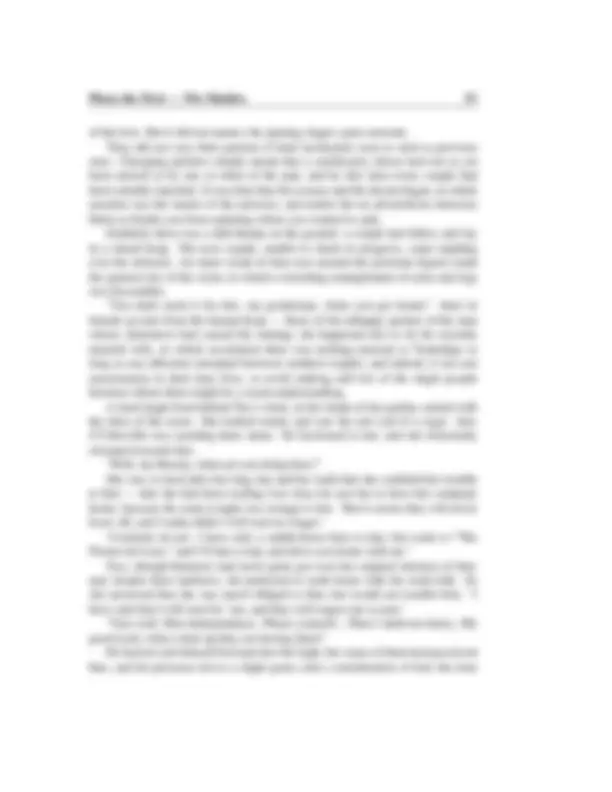
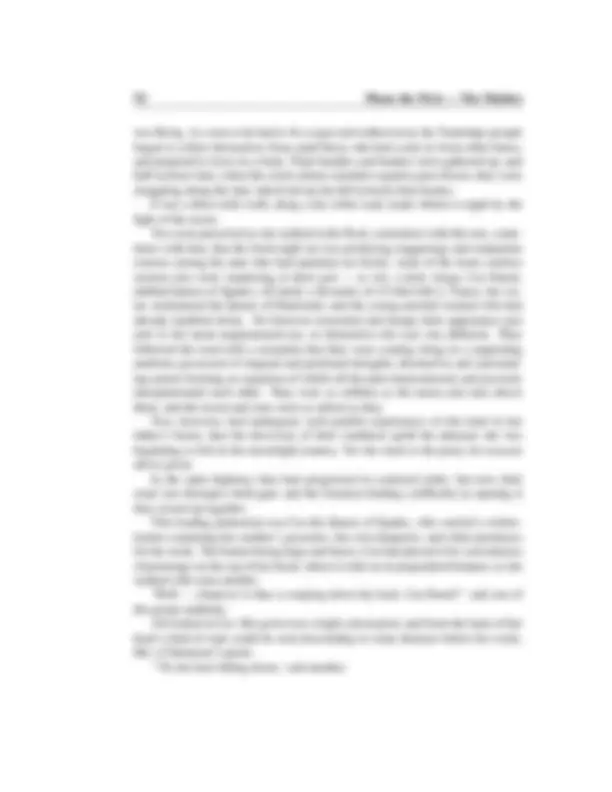
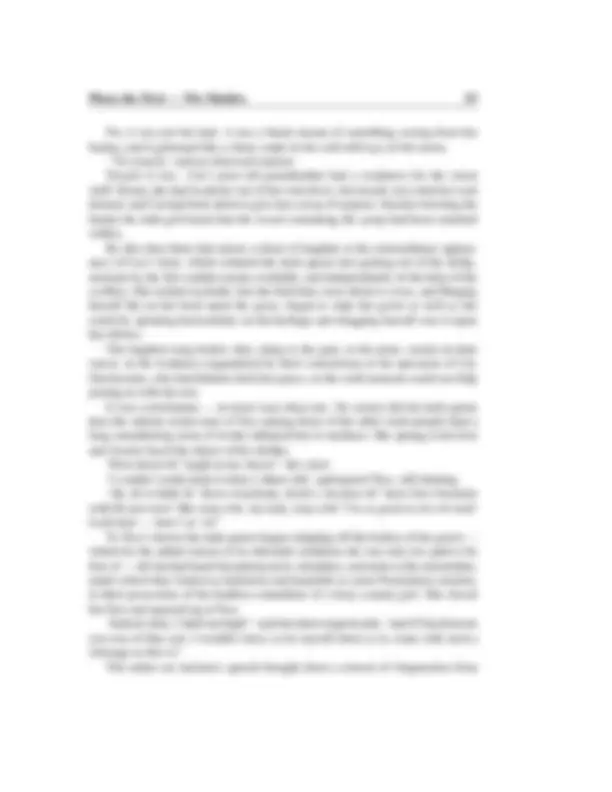
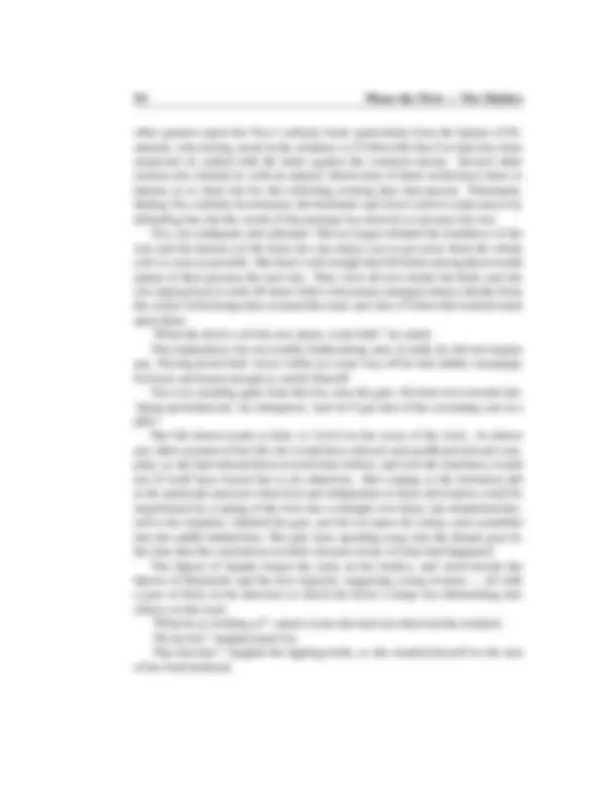
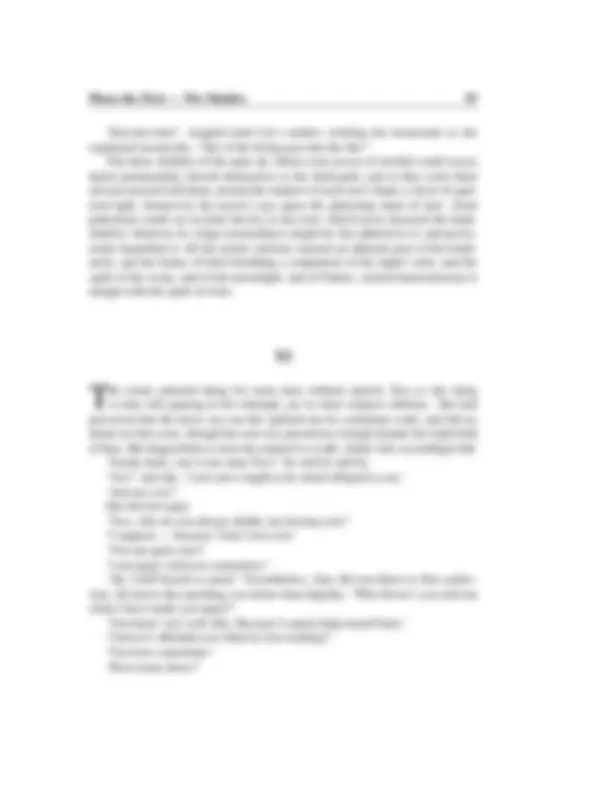
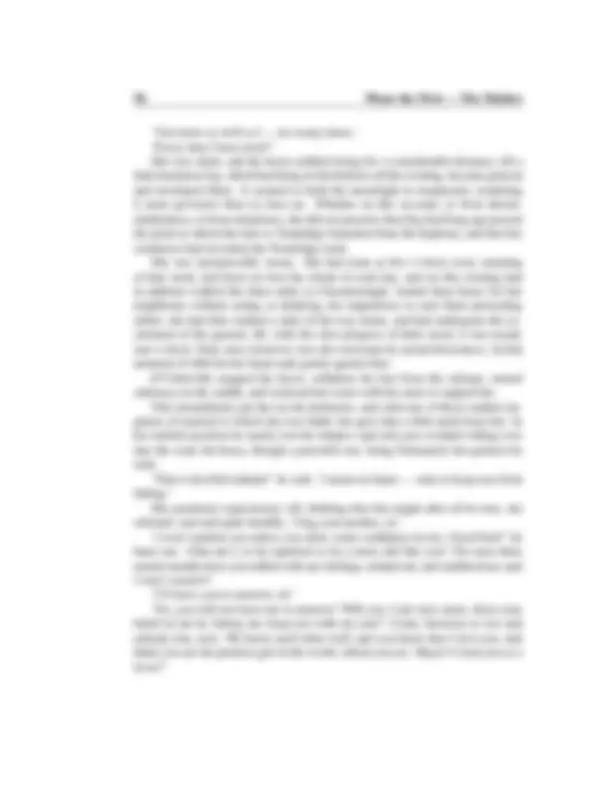
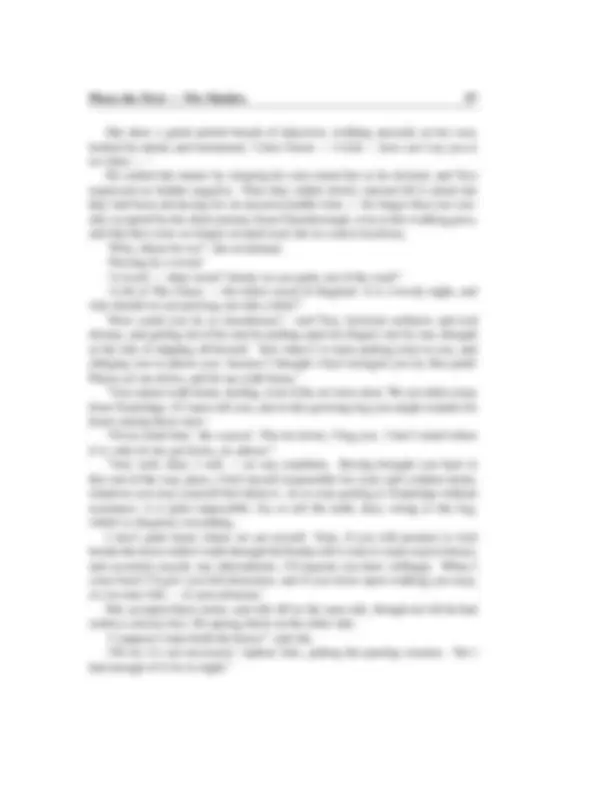
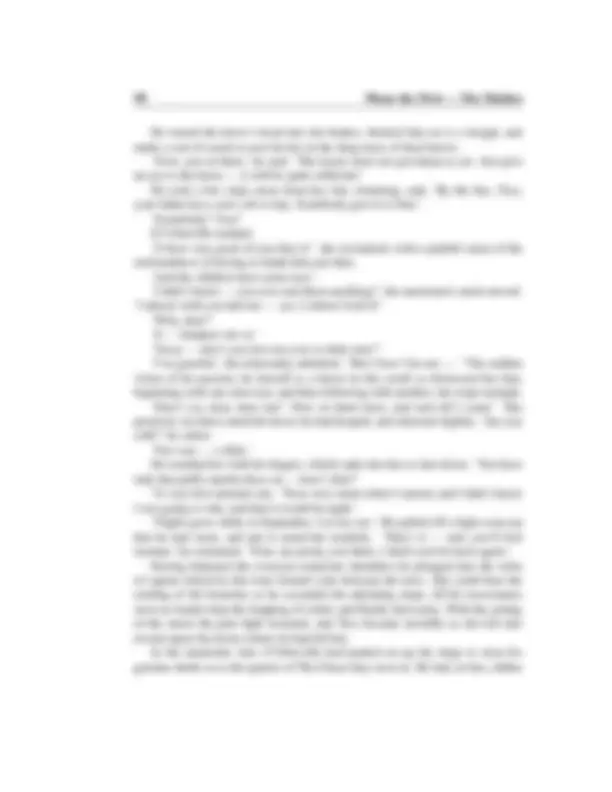
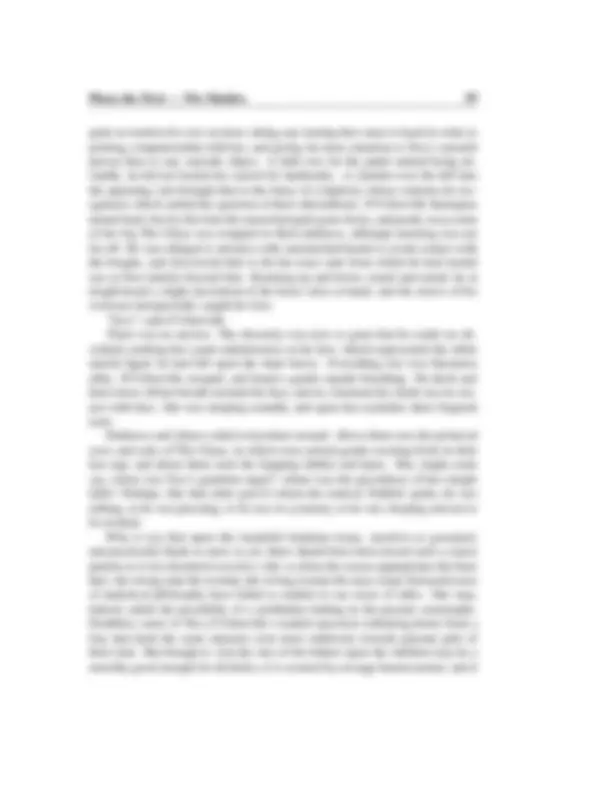

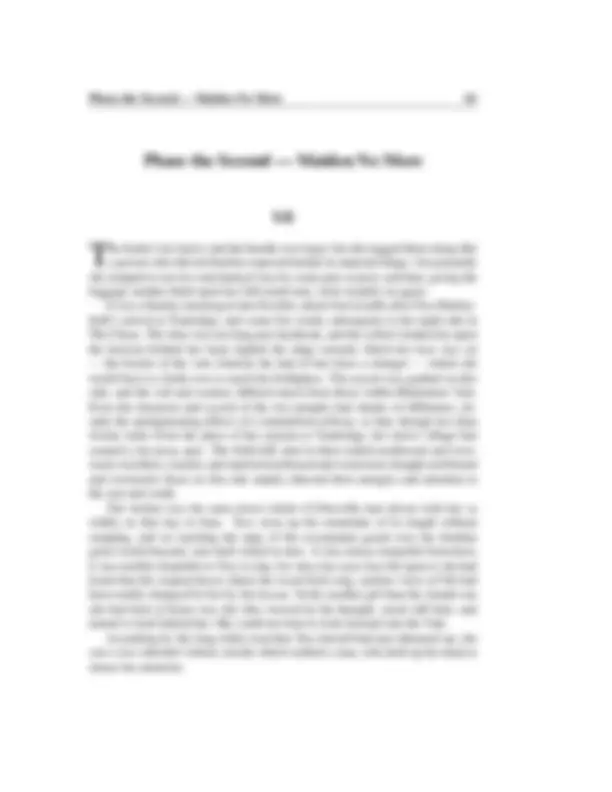
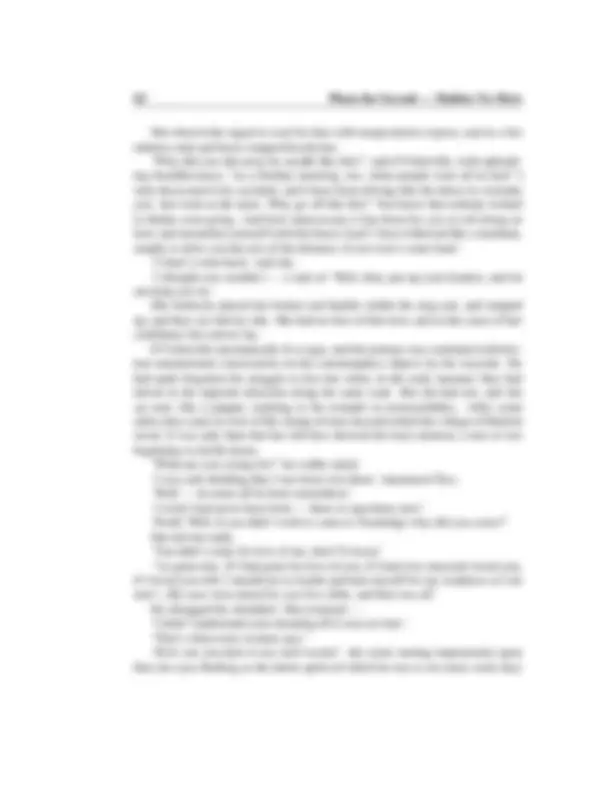

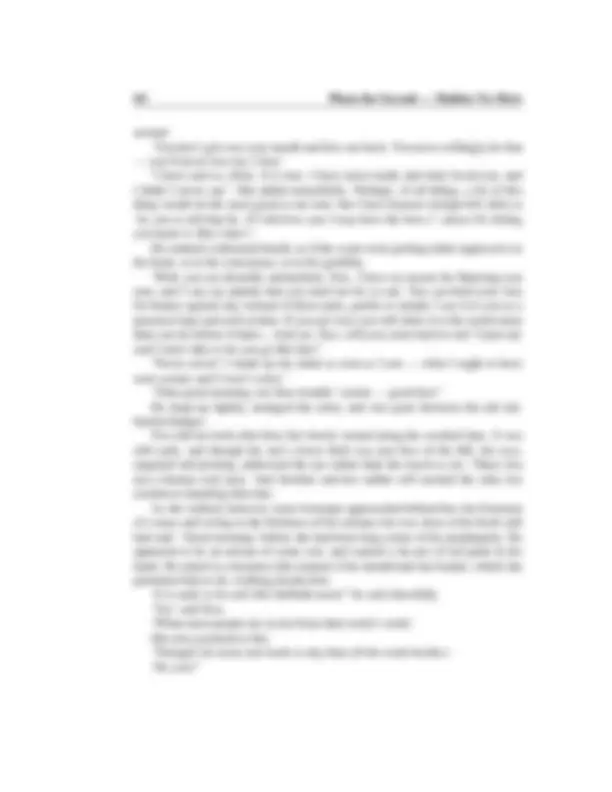
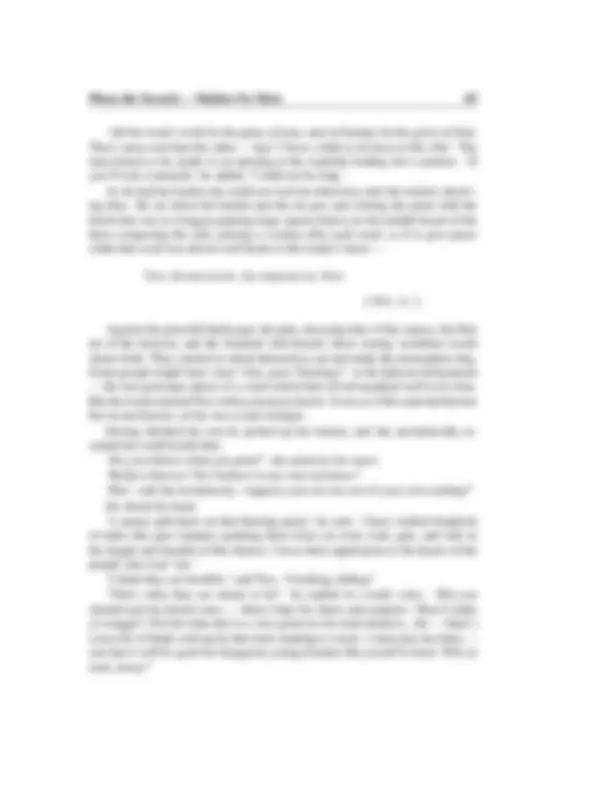
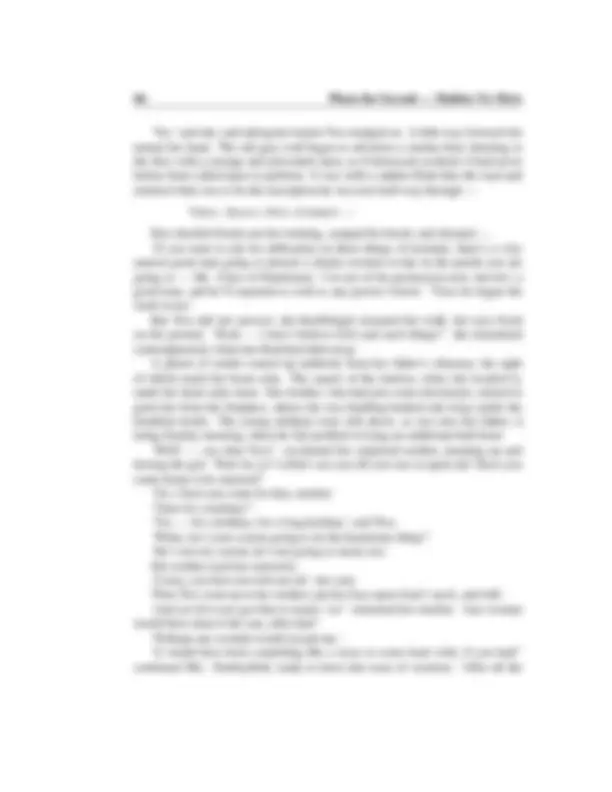

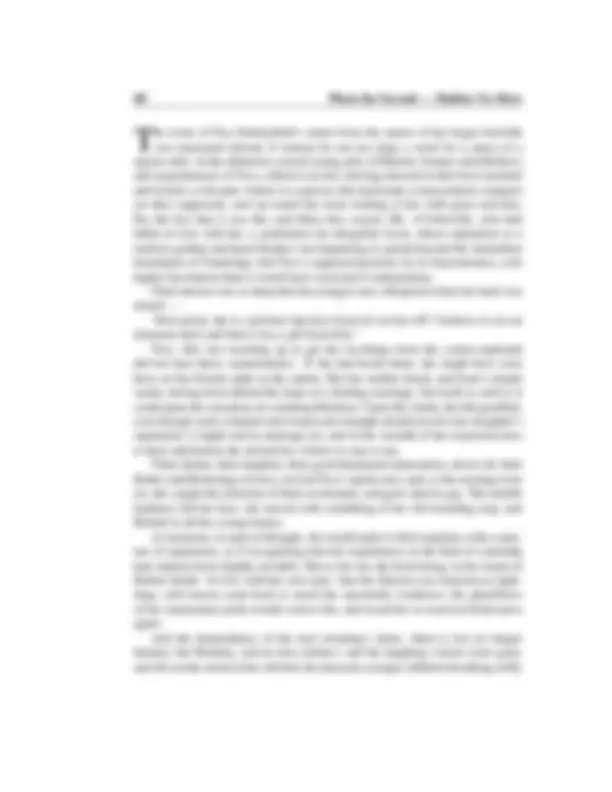
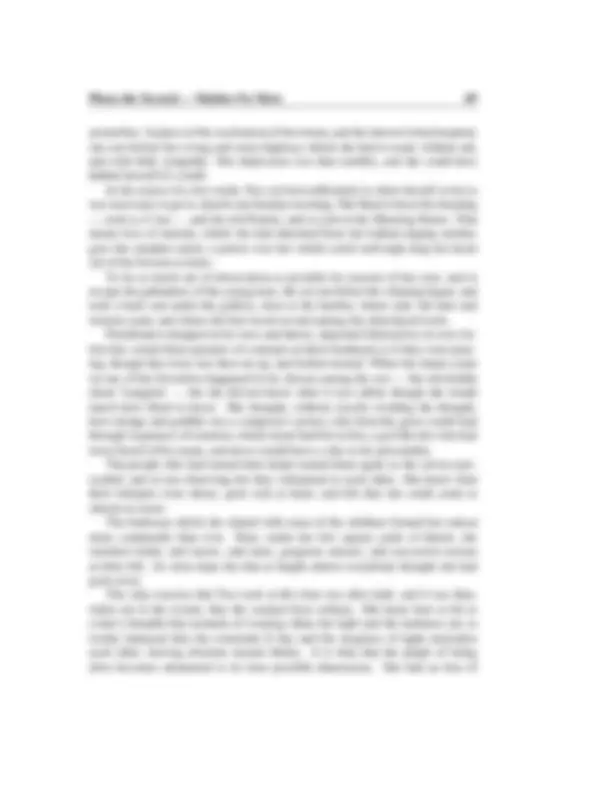
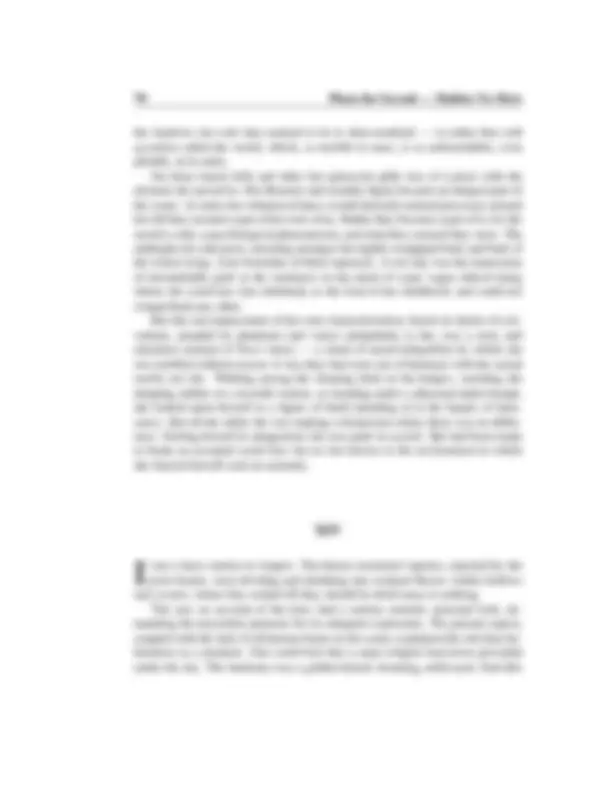
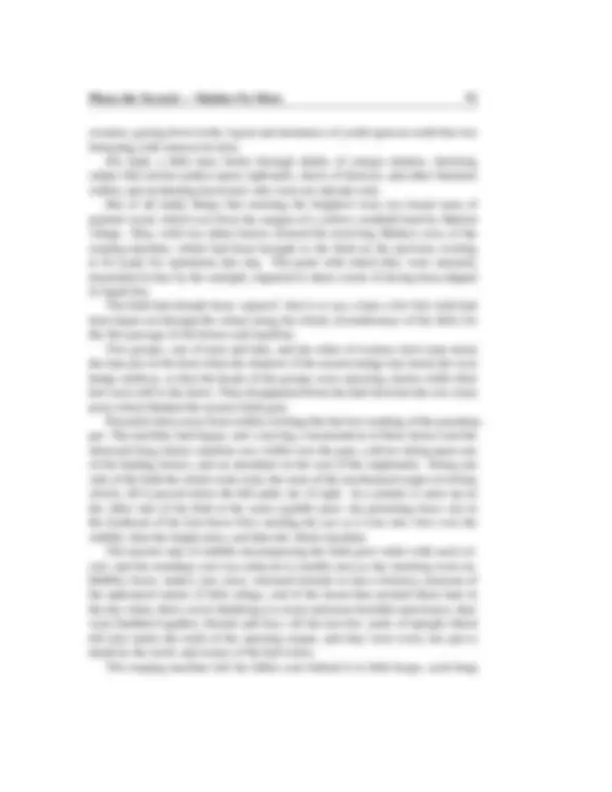
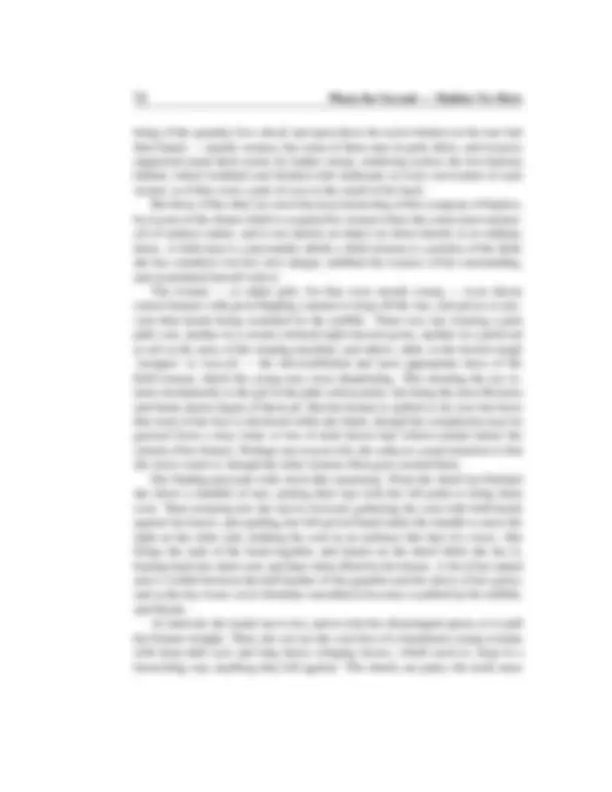
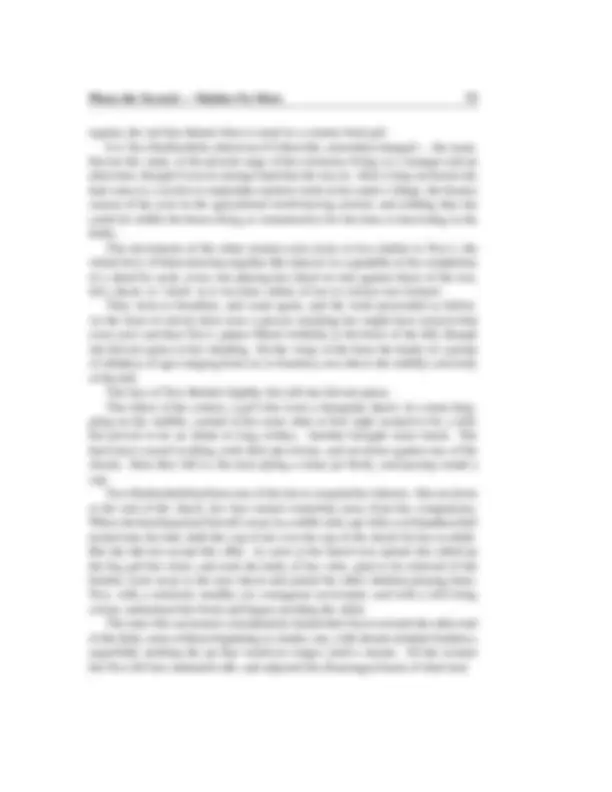
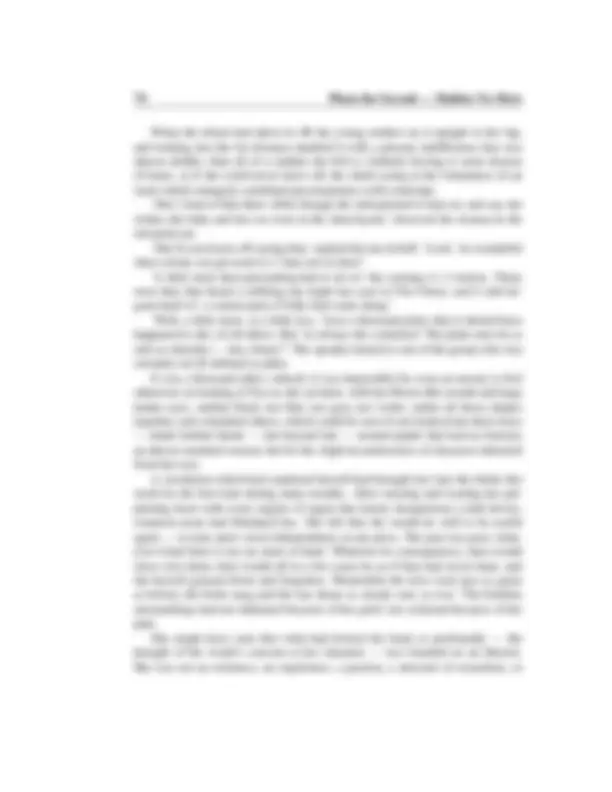
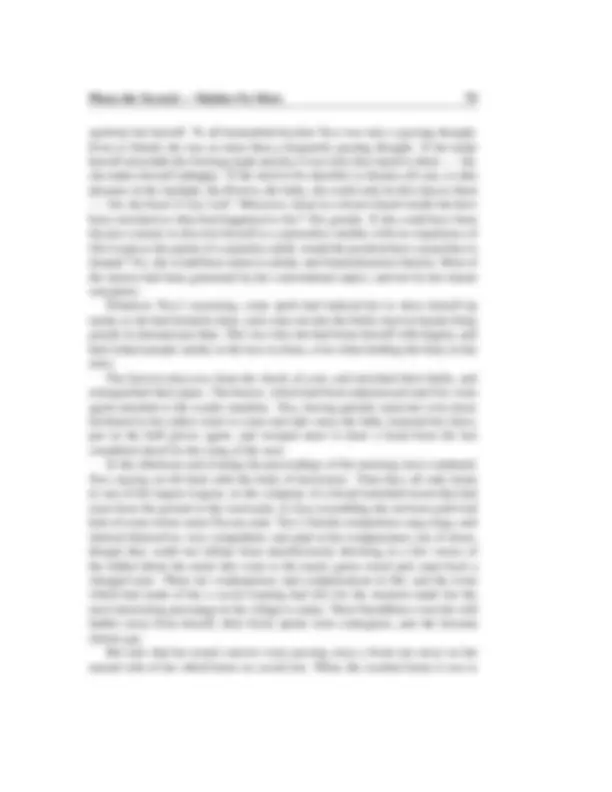
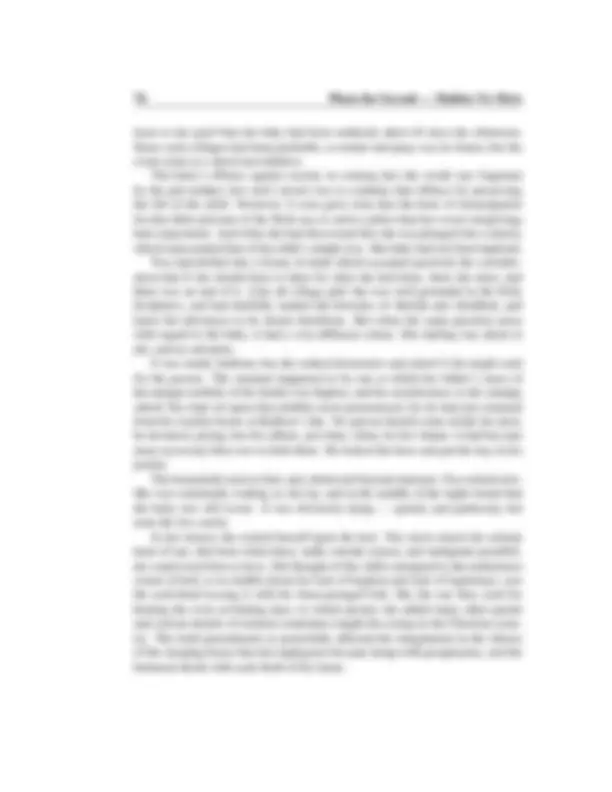
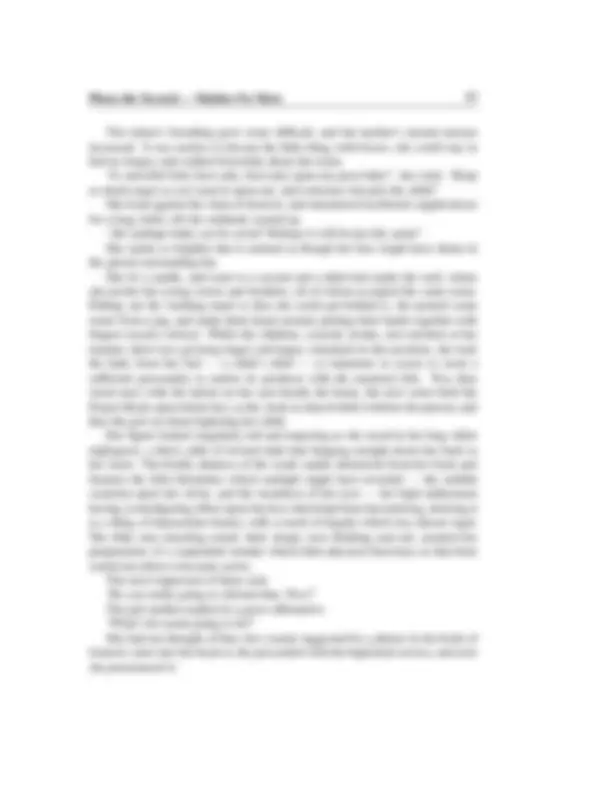
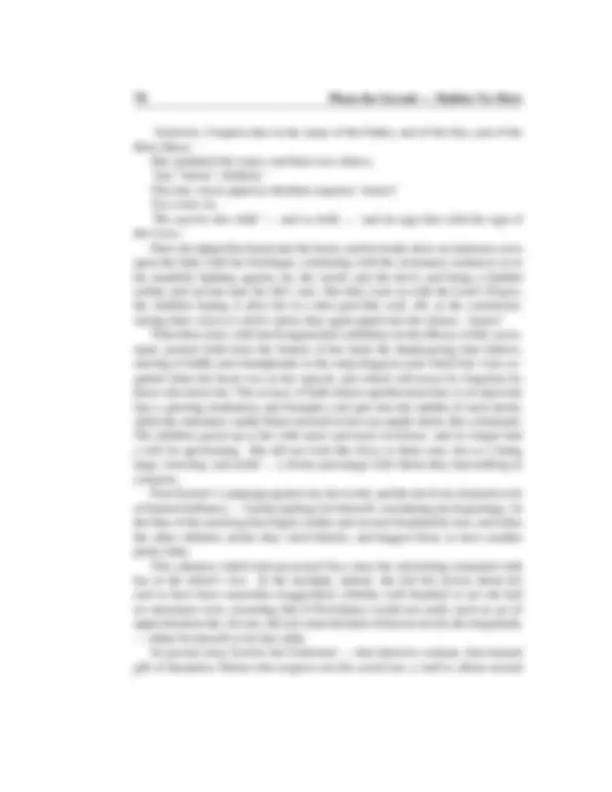

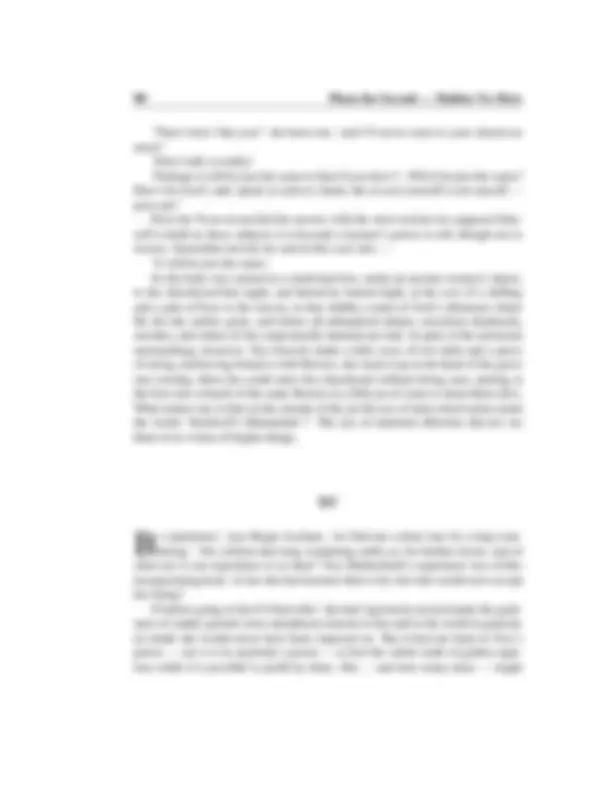
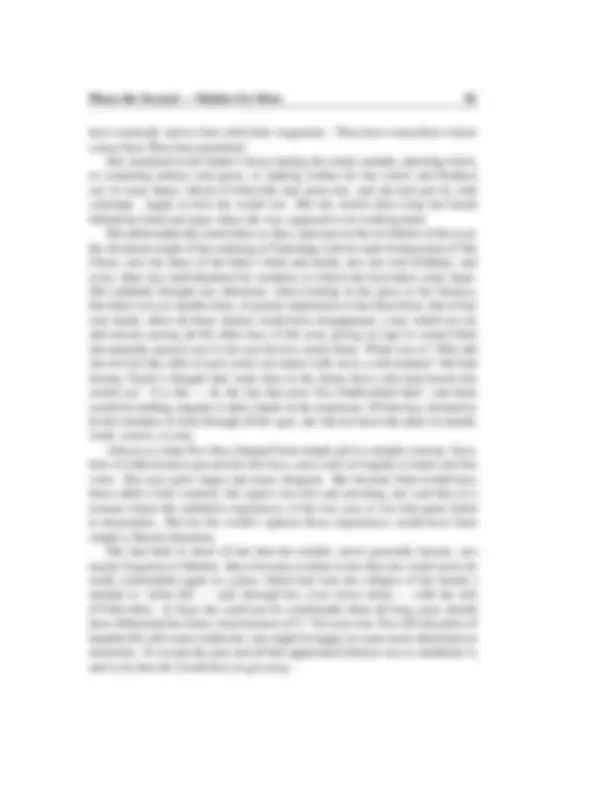
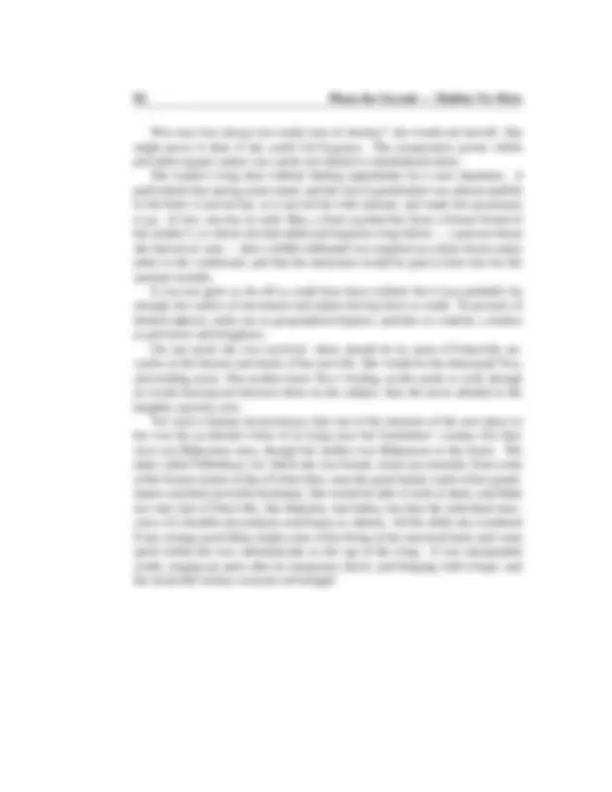
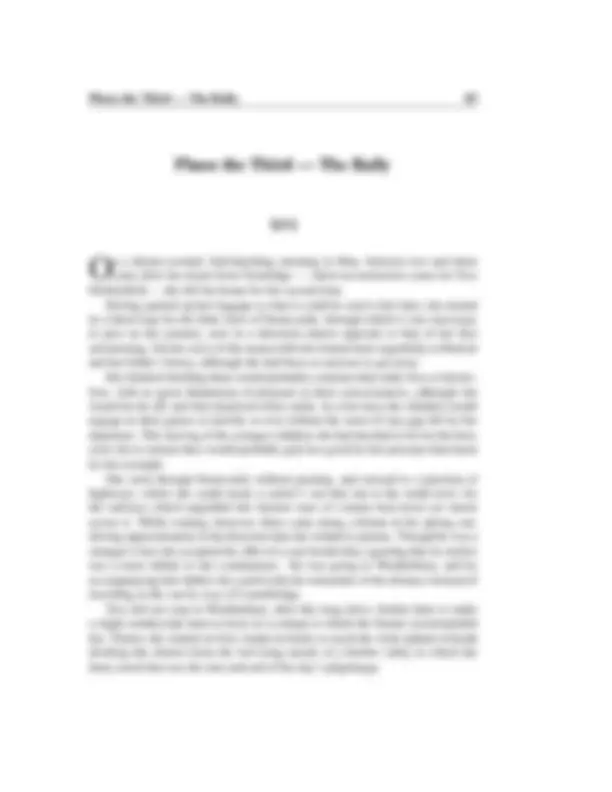
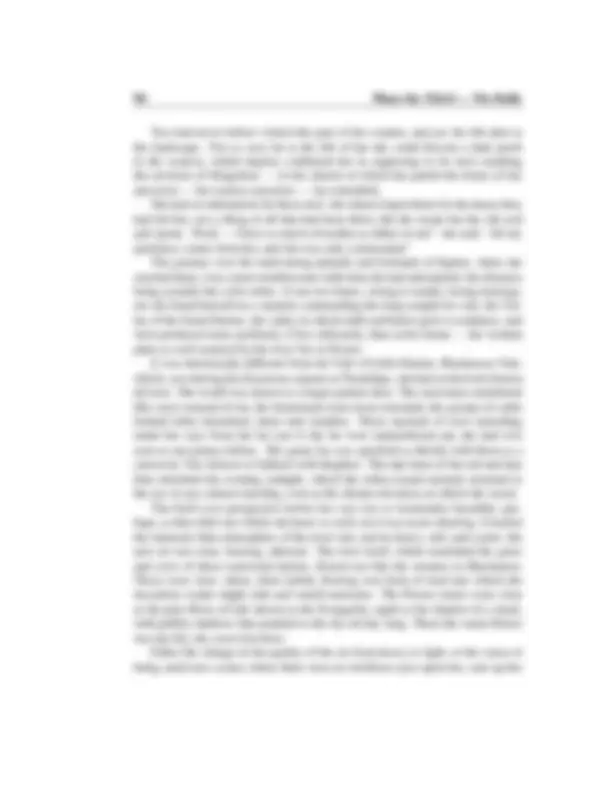
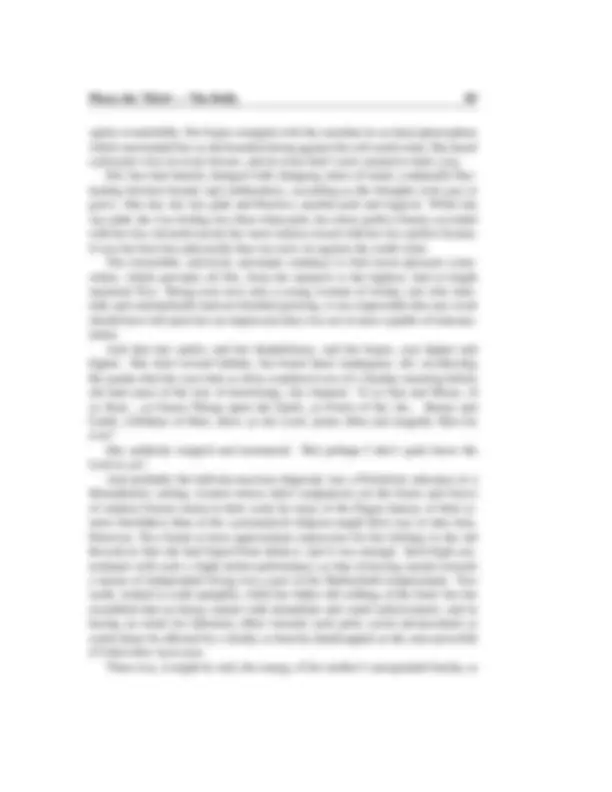
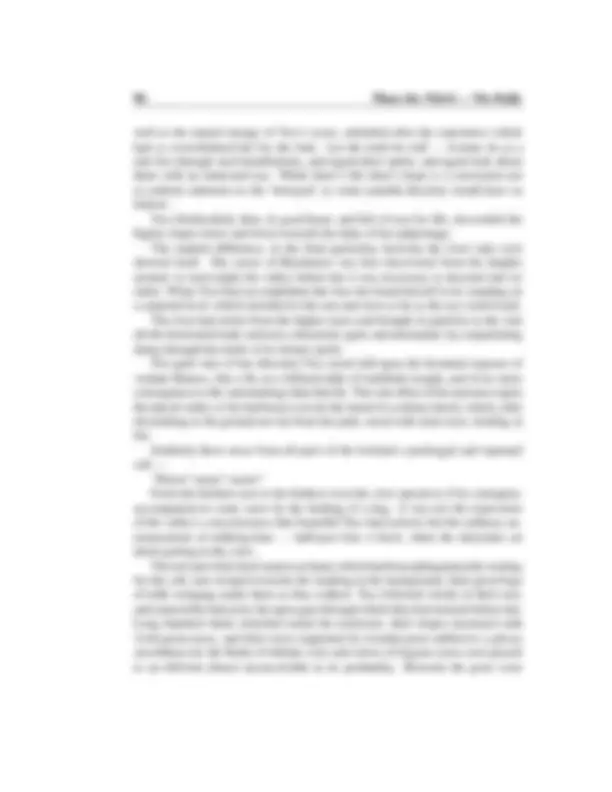
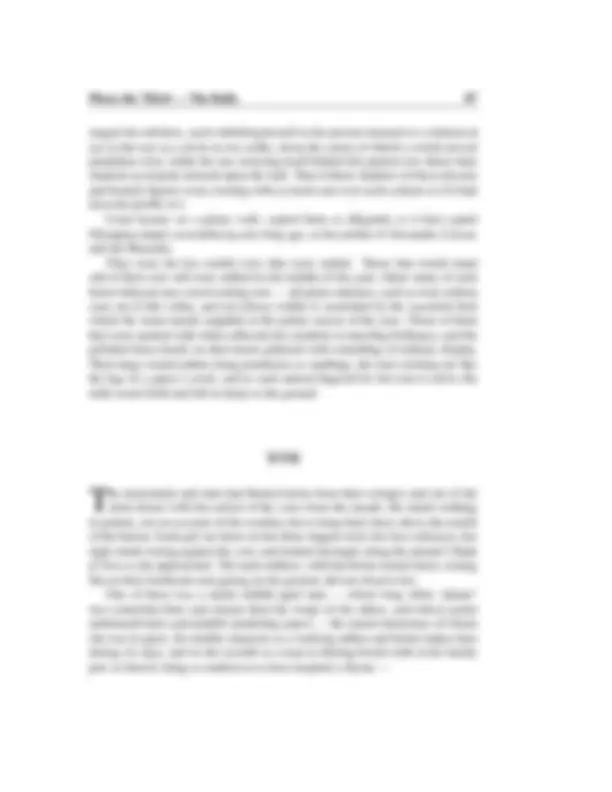


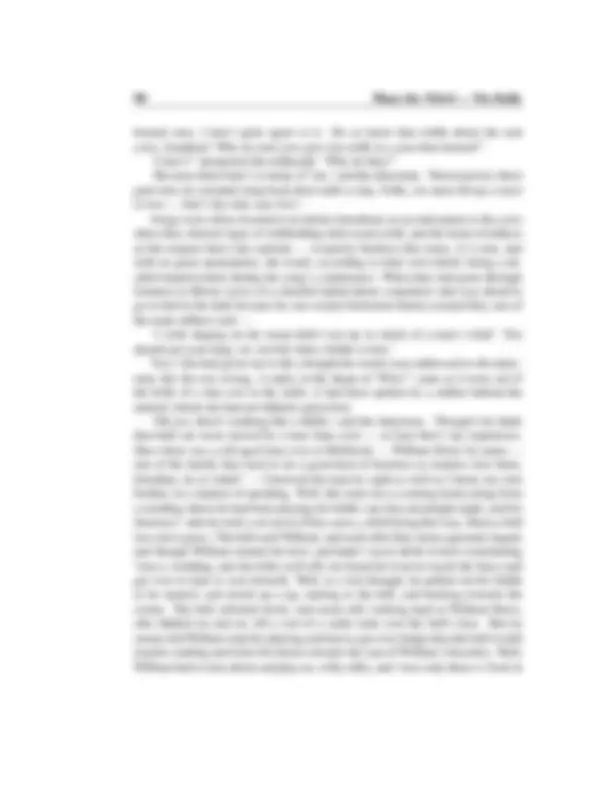

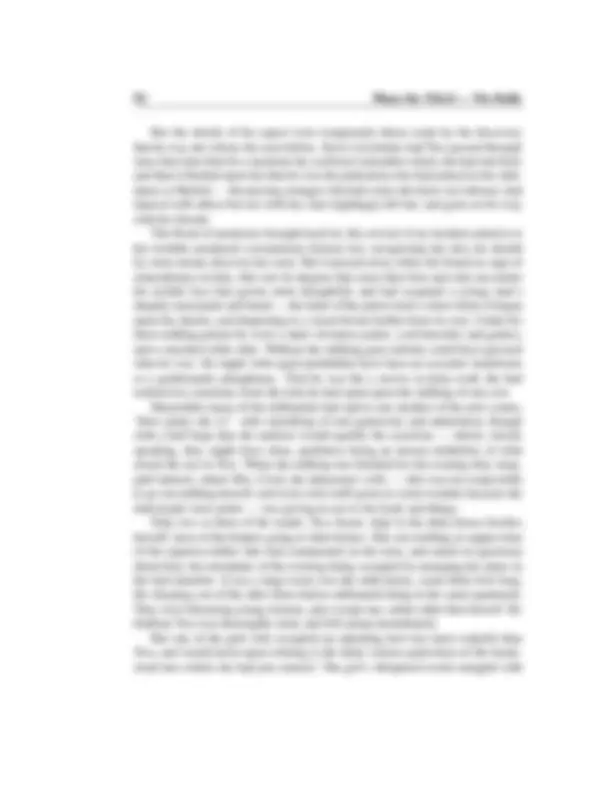
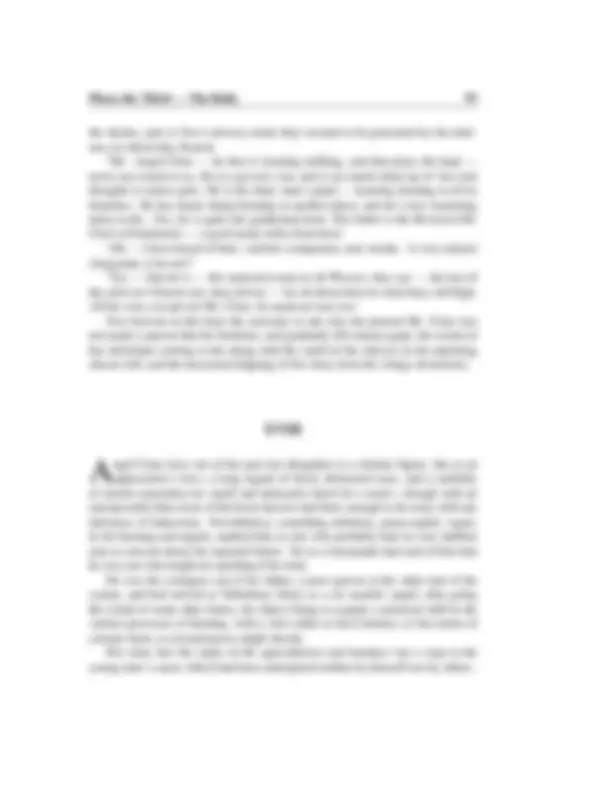
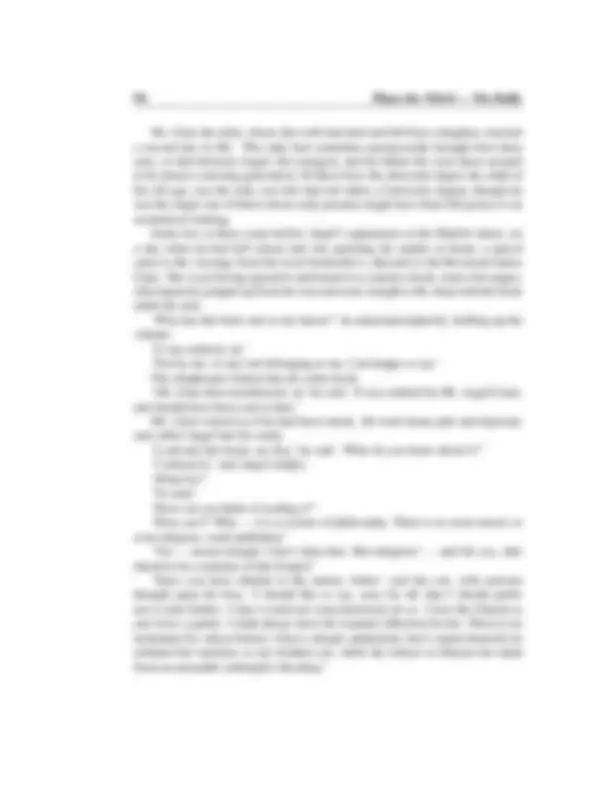
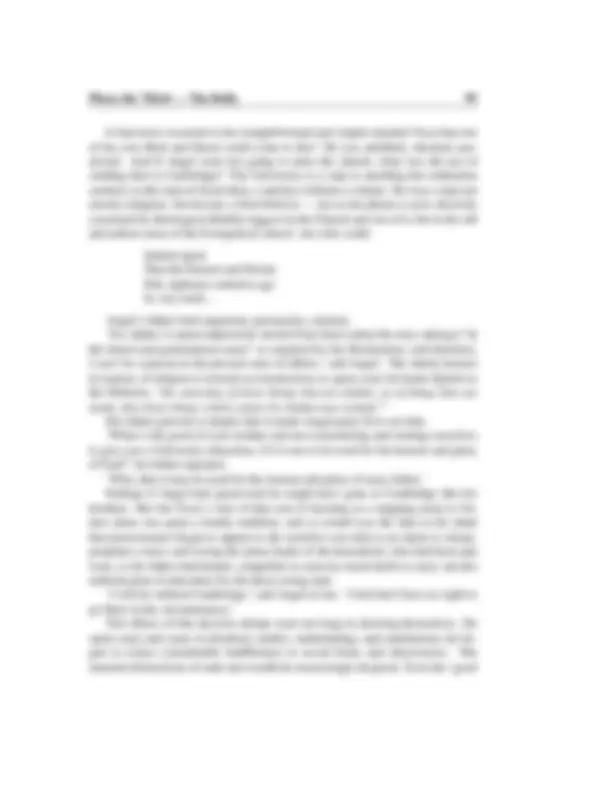
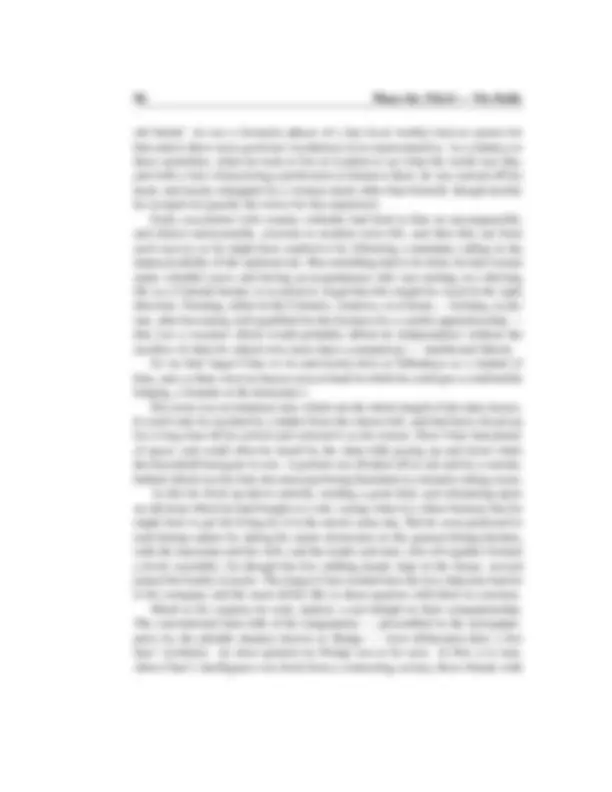


Study with the several resources on Docsity

Earn points by helping other students or get them with a premium plan


Prepare for your exams
Study with the several resources on Docsity

Earn points to download
Earn points by helping other students or get them with a premium plan
Community
Ask the community for help and clear up your study doubts
Discover the best universities in your country according to Docsity users
Free resources
Download our free guides on studying techniques, anxiety management strategies, and thesis advice from Docsity tutors
On an evening in the latter part of May a middle-aged man was walking home- ward from Shaston to the village of Marlott, in the adjoining Vale of Blake-.
Typology: Lecture notes
1 / 335

This page cannot be seen from the preview
Don't miss anything!





























































































iv CONTENTS
Phase the First — The Maiden
O
n an evening in the latter part of May a middle-aged man was walking home- ward from Shaston to the village of Marlott, in the adjoining Vale of Blake- more or Blackmoor. The pair of legs that carried him were rickety, and there was a bias in his gait which inclined him somewhat to the left of a straight line. He occasionally gave a smart nod, as if in confirmation of some opinion, though he was not thinking of anything in particular. An empty egg-basket was slung upon his arm, the nap of his hat was ruffled, a patch being quite worn away at its brim where his thumb came in taking it off. Presently he was met by an elderly parson astride on a gray mare, who, as he rode, hummed a wandering tune. ‘Good night t’ee,’ said the man with the basket. ‘Good night, Sir John,’ said the parson. The pedestrian, after another pace or two, halted, and turned round. ‘Now, sir, begging your pardon; we met last market-day on this road about this time, and I zaid “Good night,” and you made reply “ Good night, Sir John ,” as now.’ ‘I did,’ said the parson. ‘And once before that — near a month ago.’ ‘I may have.’ ‘Then what might your meaning be in calling me “Sir John” these different times, when I be plain Jack Durbeyfield, the haggler?’ The parson rode a step or two nearer. ‘It was only my whim,’ he said; and, after a moment’s hesitation: ‘It was on account of a discovery I made some little time ago, whilst I was hunting up pedi- grees for the new county history. I am Parson Tringham, the antiquary, of Stagfoot Lane. Don’t you really know, Durbeyfield, that you are the lineal representative of the ancient and knightly family of the d’Urbervilles, who derive their descent from Sir Pagan d’Urberville, that renowned knight who came from Normandy with William the Conqueror, as appears by Battle Abbey Roll?’ ‘Never heard it before, sir!’
‘That’s bad.’ ‘Yes — what the mendacious family chronicles call extinct in the male line — that is, gone down — gone under.’ ‘Then where do we lie?’ ‘At Kingsbere-sub-Greenhill: rows and rows of you in your vaults, with your effigies under Purbeck-marble canopies.’ ‘And where be our family mansions and estates?’ ‘You haven’t any.’ ‘Oh? No lands neither?’ ‘None; though you once had ’em in abundance, as I said, for your family con- sisted of numerous branches. In this county there was a seat of yours at Kingsbere, and another at Sherton, and another at Millpond, and another at Lullstead, and an- other at Wellbridge.’ ‘And shall we ever come into our own again?’ ‘Ah — that I can’t tell!’ ‘And what had I better do about it, sir?’ asked Durbeyfield, after a pause. ‘Oh — nothing, nothing; except chasten yourself with the thought of “how are the mighty fallen.” It is a fact of some interest to the local historian and genealogist, nothing more. There are several families among the cottagers of this county of almost equal lustre. Good night.’ ‘But you’ll turn back and have a quart of beer wi’ me on the strength o’t, Pa’son Tringham? There’s a very pretty brew in tap at The Pure Drop — though, to be sure, not so good as at Rolliver’s.’ ‘No, thank you — not this evening, Durbeyfield. You’ve had enough already.’ Concluding thus the parson rode on his way, with doubts as to his discretion in retailing this curious bit of lore. When he was gone Durbeyfield walked a few steps in a profound reverie, and then sat down upon the grassy bank by the roadside, depositing his basket before him. In a few minutes a youth appeared in the distance, walking in the same direction as that which had been pursued by Durbeyfield. The latter, on seeing him, held up his hand, and the lad quickened his pace and came near. ‘Boy, take up that basket! I want ’ee to go on an errand for me.’ The lath-like stripling frowned. ‘Who be you, then, John Durbeyfield, to order me about and call me “boy”? You know my name as well as I know yours!’ ‘Do you, do you? That’s the secret — that’s the secret! Now obey my orders, and take the message I’m going to charge ’ee wi’....Well, Fred, I don’t mind telling you that the secret is that I’m one of a noble race — it has been just found out by me this present afternoon, P.M.’ And as he made the announcement, Durbeyfield,
declining from his sitting position, luxuriously stretched himself out upon the bank among the daisies. The lad stood before Durbeyfield, and contemplated his length from crown to toe.
‘Sir John d’Urberville — that’s who I am,’ continued the prostrate man. ‘That is if knights were baronets — which they be. ’Tis recorded in history all about me. Dost know of such a place, lad, as Kingsbere-sub-Greenhill?’ ‘Ees. I’ve been there to Greenhill Fair.’ ‘Well, under the church of that city there lie — ’ ‘’Tisn’t a city, the place I mean; leastwise ’twaddn’ when I was there — ’twas a little one-eyed, blinking sort o’ place.’ ‘Never you mind the place, boy, that’s not the question before us. Under the church of that there parish lie my ancestors — hundreds of ’em — in coats of mail and jewels, in gr’t lead coffins weighing tons and tons. There’s not a man in the county o’ South-Wessex that’s got grander and nobler skillentons in his family than I.’ ‘Oh?’ ‘Now take up that basket, and goo on to Marlott, and when you’ve come to The Pure Drop Inn, tell ’em to send a horse and carriage to me immed’ately, to carry me hwome. And in the bottom o’ the carriage they be to put a noggin o’ rum in a small bottle, and chalk it up to my account. And when you’ve done that goo on to my house with the basket, and tell my wife to put away that washing, because she needn’t finish it, and wait till I come hwome, as I’ve news to tell her.’ As the lad stood in a dubious attitude, Durbeyfield put his hand in his pocket, and produced a shilling, one of the chronically few that he possessed.
‘Here’s for your labour, lad.’ This made a difference in the young man’s estimate of the position. ‘Yes, Sir John. Thank ’ee. Anything else I can do for ’ee, Sir John?’ ‘Tell ’em at hwome that I should like for supper, — well, lamb’s fry if they can get it; and if they can’t, black-pot; and if they can’t get that, well, chitterlings will do.’ ‘Yes, Sir John.’ The boy took up the basket, and as he set out the notes of a brass band were heard from the direction of the village. ‘What’s that?’ said Durbeyfield. ‘Not on account o’ I?’ ‘’Tis the women’s club-walking, Sir John. Why, your da’ter is one o’ the members.’
The district is of historic, no less than of topographical interest. The Vale was known in former times as the Forest of White Hart, from a curious legend of King Henry III.’s reign, in which the killing by a certain Thomas de la Lynd of a beautiful white hart which the king had run down and spared, was made the occasion of a heavy fine. In those days, and till comparatively recent times, the country was densely wooded. Even now, traces of its earlier condition are to be found in the old oak copses and irregular belts of timber that yet survive upon its slopes, and the hollow-trunked trees that shade so many of its pastures. The forests have departed, but some old customs of their shades remain. Many, however, linger only in a metamorphosed or disguised form. The May-Day dance, for instance, was to be discerned on the afternoon under notice, in the guise of the club revel, or ‘club-walking,’ as it was there called. It was an interesting event to the younger inhabitants of Marlott, though its real interest was not observed by the participators in the ceremony. Its singular- ity lay less in the retention of a custom of walking in procession and dancing on each anniversary than in the members being solely women. In men’s clubs such celebrations were, though expiring, less uncommon; but either the natural shyness of the softer sex, or a sarcastic attitude on the part of male relatives, had denuded such women’s clubs as remained (if any other did) of this their glory and con- summation. The club of Marlott alone lived to uphold the local Cerealia. It had walked for hundreds of years, if not as benefit-club, as votive sisterhood of some sort; and it walked still. The banded ones were all dressed in white gowns — a gay survival from Old Style days, when cheerfulness and May-time were synonyms — days before the habit of taking long views had reduced emotions to a monotonous average. Their first exhibition of themselves was in a processional march of two and two round the parish. Ideal and real clashed slightly as the sun lit up their figures against the green hedges and creeper-laced house-fronts; for, though the whole troop wore white garments, no two whites were alike among them. Some approached pure blanching; some had a bluish pallor; some worn by the older characters (which had possibly lain by folded for many a year) inclined to a cadaverous tint, and to a Georgian style. In addition to the distinction of a white frock, every woman and girl carried in her right hand a peeled willow wand, and in her left a bunch of white flowers. The peeling of the former, and the selection of the latter, had been an operation of personal care. There were a few middle-aged and even elderly women in the train, their silver-wiry hair and wrinkled faces, scourged by time and trouble, having almost
a grotesque, certainly a pathetic, appearance in such a jaunty situation. In a true view, perhaps, there was more to be gathered and told of each anxious and experi- enced one, to whom the years were drawing nigh when she should say, ‘I have no pleasure in them,’ than of her juvenile comrades. But let the elder be passed over here for those under whose bodices the life throbbed quick and warm. The young girls formed, indeed, the majority of the band, and their heads of luxuriant hair reflected in the sunshine every tone of gold, and black, and brown. Some had beautiful eyes, others a beautiful nose, others a beautiful mouth and figure: few, if any, had all. A difficulty of arranging their lips in this crude ex- posure to public scrutiny, an inability to balance their heads, and to dissociate self-consciousness from their features, was apparent in them, and showed that they were genuine country girls, unaccustomed to many eyes. And as each and all of them were warmed without by the sun, so each had a private little sun for her soul to bask in; some dream, some affection, some hobby, at least some remote and distant hope which, though perhaps starving to nothing, still lived on, as hopes will. Thus they were all cheerful, and many of them merry. They came round by The Pure Drop Inn, and were turning out of the high road to pass through a wicket-gate into the meadows, when one of the women said — ‘The Lord-a-Lord! Why, Tess Durbeyfield, if there isn’t thy father riding hwome in a carriage!’ A young member of the band turned her head at the exclamation. She was a fine and handsome girl — not handsomer than some others, possibly — but her mobile peony mouth and large innocent eyes added eloquence to colour and shape. She wore a red ribbon in her hair, and was the only one of the white company who could boast of such a pronounced adornment. As she looked round Durbeyfield was seen moving along the road in a chaise belonging to The Pure Drop, driven by a frizzle-headed brawny damsel with her gown-sleeves rolled above her elbows. This was the cheerful servant of that establishment, who, in her part of factotum, turned groom and ostler at times. Durbeyfield, leaning back, and with his eyes closed luxuriously, was waving his hand above his head, and singing in a slow recitative — ‘I’ve-got-a-gr’t-family-vault-at-Kingsbere — and knighted-forefathers-in-lead- coffins-there!’ The clubbists tittered, except the girl called Tess — in whom a slow heat seemed to rise at the sense that her father was making himself foolish in their eyes. ‘He’s tired, that’s all,’ she said hastily, ‘and he has got a lift home, because our own horse has to rest to-day.’
second was the normal undergraduate; the appearance of the third and youngest would hardly have been sufficient to characterize him; there was an uncribbed, uncabined aspect in his eyes and attire, implying that he had hardly as yet found the entrance to his professional groove. That he was a desultory tentative student of something and everything might only have been predicted of him. These three brethren told casual acquaintance that they were spending their Whitsun holidays in a walking tour through the Vale of Blackmoor, their course being south-westerly from the town of Shaston on the north-east. They leant over the gate by the highway, and inquired as to the meaning of the dance and the white-frocked maids. The two elder of the brothers were plainly not intending to linger more than a moment, but the spectacle of a bevy of girls dancing without male partners seemed to amuse the third, and make him in no hurry to move on. He unstrapped his knapsack, put it, with his stick, on the hedge-bank, and opened the gate. ‘What are you going to do, Angel?’ asked the eldest. ‘I am inclined to go and have a fling with them. Why not all of us — just for a minute or two — it will not detain us long?’ ‘No — no; nonsense!’ said the first. ‘Dancing in public with a troop of country hoydens — suppose we should be seen! Come along, or it will be dark before we get to Stourcastle, and there’s no place we can sleep at nearer than that; besides, we must get through another chapter of A Counterblast to Agnosticism before we turn in, now I have taken the trouble to bring the book.’ ‘All right — I’ll overtake you and Cuthbert in five minutes; don’t stop; I give my word that I will, Felix.’ The two elder reluctantly left him and walked on, taking their brother’s knap- sack to relieve him in following, and the youngest entered the field. ‘This is a thousand pities,’ he said gallantly, to two or three girls nearest him, as soon as there was a pause in the dance. ‘Where are your partners, my dears?’ ‘They’ve not left off work yet,’ answered one of the boldest. ‘They’ll be here by and by. Till then, will you be one, sir?’ ‘Certainly. But what’s one among so many!’ ‘Better than none. ’Tis melancholy work facing and footing it to one of your own sort, and no clipsing and colling at all. Now, pick and choose.’ ‘’Ssh — don’t be so for’ard!’ said a shyer girl. The young man, thus invited, glanced them over, and attempted some discrim- ination; but, as the group were all so new to him, he could not very well exercise it. He took almost the first that came to hand, which was not the speaker, as she had expected; nor did it happen to be Tess Durbeyfield. Pedigree, ancestral skele-
tons, monumental record, the d’Urberville lineaments, did not help Tess in her life’s battle as yet, even to the extent of attracting to her a dancing-partner over the heads of the commonest peasantry. So much for Norman blood unaided by Victorian lucre. The name of the eclipsing girl, whatever it was, has not been handed down; but she was envied by all as the first who enjoyed the luxury of a masculine partner that evening. Yet such was the force of example that the village young men, who had not hastened to enter the gate while no intruder was in the way, now dropped in quickly, and soon the couples became leavened with rustic youth to a marked extent, till at length the plainest woman in the club was no longer compelled to foot it on the masculine side of the figure. The church clock struck, when suddenly the student said that he must leave — he had been forgetting himself — he had to join his companions. As he fell out of the dance his eyes lighted on Tess Durbeyfield, whose own large orbs wore, to tell the truth, the faintest aspect of reproach that he had not chosen her. He, too, was sorry then that, owing to her backwardness, he had not observed her; and with that in his mind he left the pasture. On account of his long delay he started in a flying-run down the lane west- ward, and had soon passed the hollow and mounted the next rise. He had not yet overtaken his brothers, but he paused to get breath, and looked back. He could see the white figures of the girls in the green enclosure whirling about as they had whirled when he was among them. They seemed to have quite forgotten him already. All of them, except, perhaps, one. This white shape stood apart by the hedge alone. From her position he knew it to be the pretty maiden with whom he had not danced. Trifling as the matter was, he yet instinctively felt that she was hurt by his oversight. He wished that he had asked her; he wished that he had inquired her name. She was so modest, so expressive, she had looked so soft in her thin white gown that he felt he had acted stupidly. However, it could not be helped, and turning, and bending himself to a rapid walk, he dismissed the subject from his mind.
s for Tess Durbeyfield, she did not so easily dislodge the incident from her consideration. She had no spirit to dance again for a long time, though she
There stood her mother amid the group of children, as Tess had left her, hang- ing over the Monday washing-tub, which had now, as always, lingered on to the end of the week. Out of that tub had come the day before — Tess felt it with a dreadful sting of remorse — the very white frock upon her back which she had so carelessly greened about the skirt on the damping grass — which had been wrung up and ironed by her mother’s own hands. As usual, Mrs. Durbeyfield was balanced on one foot beside the tub, the other being engaged in the aforesaid business of rocking her youngest child. The cradle- rockers had done hard duty for so many years, under the weight of so many chil- dren, on that flagstone floor, that they were worn nearly flat, in consequence of which a huge jerk accompanied each swing of the cot, flinging the baby from side to side like a weaver’s shuttle, as Mrs. Durbeyfield, excited by her song, trod the rocker with all the spring that was left in her after a long day’s seething in the suds. Nick-knock, nick-knock, went the cradle; the candle-flame stretched itself tall, and began jigging up and down; the water dribbled from the matron’s elbows, and the song galloped on to the end of the verse, Mrs. Durbeyfield regarding her daughter the while. Even now, when burdened with a young family, Joan Durbeyfield was a passionate lover of tune. No ditty floated into Blackmoor Vale from the outer world but Tess’s mother caught up its notation in a week. There still faintly beamed from the woman’s features something of the fresh- ness, and even the prettiness, of her youth; rendering it probable that the personal charms which Tess could boast of were in main part her mother’s gift, and there- fore unknightly, unhistorical. ‘I’ll rock the cradle for ’ee, mother,’ said the daughter gently. ‘Or I’ll take off my best frock and help you wring up? I thought you had finished long ago.’ Her mother bore Tess no ill-will for leaving the house-work to her single- handed efforts for so long; indeed, Joan seldom upbraided her thereon at any time, feeling but slightly the lack of Tess’s assistance whilst her instinctive plan for relieving herself of her labours lay in postponing them. To-night, however, she was even in a blither mood than usual. There was a dreaminess, a preoccupation, an exaltation, in the maternal look which the girl could not understand. ‘Well, I’m glad you’ve come,’ her mother said, as soon as the last note had passed out of her. ‘I want to go and fetch your father; but what’s more’n that, I want to tell ’ee what have happened. Y’ll be fess enough, my poppet, when th’st know!’ (Mrs. Durbeyfield habitually spoke the dialect; her daughter, who had passed the Sixth Standard in the National School under a London-trained mistress, spoke two languages; the dialect at home, more or less; ordinary English
abroad and to persons of quality.) ‘Since I’ve been away?’ Tess asked. ‘Ay!’ ‘Had it anything to do with father’s making such a mommet of himself in thik carriage this afternoon? Why did ’er? I felt inclined to sink into the ground with shame!’ ‘That wer all a part of the larry! We’ve been found to be the greatest gentlefolk in the whole county — reaching all back long before Oliver Grumble’s time — to the days of the Pagan Turks — with monuments, and vaults, and crests, and ’scutcheons, and the Lord knows what all. In Saint Charles’s days we was made Knights o’ the Royal Oak, our real name being d’Urberville!...Don’t that make your bosom plim? ’Twas on this account that your father rode home in the vlee; not because he’d been drinking, as people supposed.’ ‘I’m glad of that. Will it do us any good, mother?’ ‘O yes! ’Tis thoughted that great things may come o’t. No doubt a mampus of volk of our own rank will be down here in their carriages as soon as ’tis known. Your father learnt it on his way hwome from Shaston, and he has been telling me the whole pedigree of the matter.’ ‘Where is father now?’ asked Tess suddenly. Her mother gave irrelevant information by way of answer: ‘He called to see the doctor to-day in Shaston. It is not consumption at all, it seems. It is fat round his heart, ’a says. There, it is like this.’ Joan Durbeyfield, as she spoke, curved a sodden thumb and forefinger to the shape of the letter C, and used the other forefinger as a pointer. “‘At the present moment,” he says to your father, “your heart is enclosed all round there, and all round there; this space is still open,” ’a says. “As soon as it do meet, so,”’ — Mrs. Durbeyfield closed her fingers into a circle complete — “off you will go like a shadder, Mr. Durbeyfield,” ’a says. “You mid last ten years; you mid go off in ten months, or ten days.”’ Tess looked alarmed. Her father possibly to go behind the eternal cloud so soon, notwithstanding this sudden greatness! ‘But where is father?’ she asked again. Her mother put on a deprecating look. ‘Now don’t you be bursting out angry! The poor man — he felt so rafted after his uplifting by the pa’son’s news — that he went up to Rolliver’s half an hour ago. He do want to get up his strength for his journey tomorrow with that load of beehives, which must be delivered, family or no. He’ll have to start shortly after twelve to-night, as the distance is so long.’ ‘Get up his strength!’ said Tess impetuously, the tears welling to her eyes. ‘O my God! Go to a public-house to get up his strength! And you as well agreed as
together the Jacobean and the Victorian ages were juxtaposed. Returning along the garden path Tess mused on what the mother could have wished to ascertain from the book on this particular day. She guessed the recent ancestral discovery to bear upon it, but did not divine that it solely concerned herself. Dismissing this, however, she busied herself with sprinkling the linen dried during the daytime, in company with her nine-year-old brother Abraham, and her sister Eliza-Louisa of twelve and a half, called ‘’Liza-Lu,’ the youngest ones being put to bed. There was an interval of four years and more between Tess and the next of the family, the two who had filled the gap having died in their infancy, and this lent her a deputy-maternal attitude when she was alone with her juniors. Next in juvenility to Abraham came two more girls, Hope and Modesty; then a boy of three, and then the baby, who had just completed his first year. All these young souls were passengers in the Durbeyfield ship — entirely dependent on the judgment of the two Durbeyfield adults for their pleasures, their necessities, their health, even their existence. If the heads of the Durbeyfield household chose to sail into difficulty, disaster, starvation, disease, degradation, death, thither were these half-dozen little captives under hatches compelled to sail with them — six helpless creatures, who had never been asked if they wished for life on any terms, much less if they wished for it on such hard conditions as were involved in being of the shiftless house of Durbeyfield. Some people would like to know whence the poet whose philosophy is in these days deemed as profound and trustworthy as his song is breezy and pure, gets his authority for speaking of ‘Nature’s holy plan.’ It grew later, and neither father nor mother reappeared. Tess looked out of the door, and took a mental journey through Marlott. The village was shutting its eyes. Candles and lamps were being put out everywhere: she could inwardly behold the extinguisher and the extended hand. Her mother’s fetching simply meant one more to fetch. Tess began to perceive that a man in indifferent health, who proposed to start on a journey before one in the morning, ought not to be at an inn at this late hour celebrating his ancient blood. ‘Abraham,’ she said to her little brother, ‘do you put on your hat — you bain’t afraid? — and go up to Rolliver’s and see what has gone wi’ father and mother.’ The boy jumped promptly from his seat, and opened the door, and the night swallowed him up. Half an hour passed yet again; neither man, woman, nor child returned. Abraham, like his parents, seemed to have been limed and caught by the ensnaring inn. ‘I must go myself,’ she said.
’Liza-Lu then went to bed, and Tess, locking them all in, started on her way up the dark and crooked lane or street not made for hasty progress; a street laid out before inches of land had value, and when one-handed clocks sufficiently subdivided the day.
olliver’s inn, the single alehouse at this end of the long and broken village, could only boast of an off-license; hence, as nobody could legally drink on the premises, the amount of overt accommodation for consumers was strictly limited to a little board about six inches wide and two yards long, fixed to the garden palings by pieces of wire, so as to form a ledge. On this board thirsty strangers deposited their cups as they stood in the road and drank, and threw the dregs on the dusty ground to the pattern of Polynesia, and wished they could have a restful seat inside. Thus the strangers. But there were also local customers who felt the same wish; and where there’s a will there’s a way. In a large bedroom upstairs, the window of which was thickly curtained with a great woollen shawl lately discarded by the landlady Mrs. Rolliver, were gathered on this evening nearly a dozen persons, all seeking beatitude; all old inhabitants of the nearer end of Marlott, and frequenters of this retreat. Not only did the distance to The Pure Drop, the fully-licensed tavern at the further part of the dispersed village, render its accommodation practically unavailable for dwellers at this end; but the far more serious question, the quality of the liquor, confirmed the prevalent opinion that it was better to drink with Rolliver in a corner of the housetop than with the other landlord in a wide house. A gaunt four-post bedstead which stood in the room afforded sitting-space for several persons gathered round three of its sides; a couple more men had elevated themselves on a chest of drawers; another rested on the oak-carved ‘cwoffer’; two on the wash-stand; another on the stool; and thus all were, somehow, seated at their ease. The stage of mental comfort to which they had arrived at this hour was one wherein their souls expanded beyond their skins, and spread their personalities warmly through the room. In this process the chamber and its furniture grew more and more dignified and luxurious; the shawl hanging at the window took upon itself the richness of tapestry; the brass handles of the chest of drawers were as